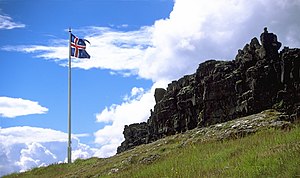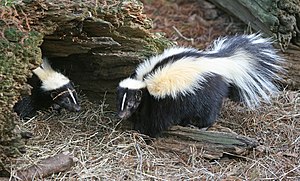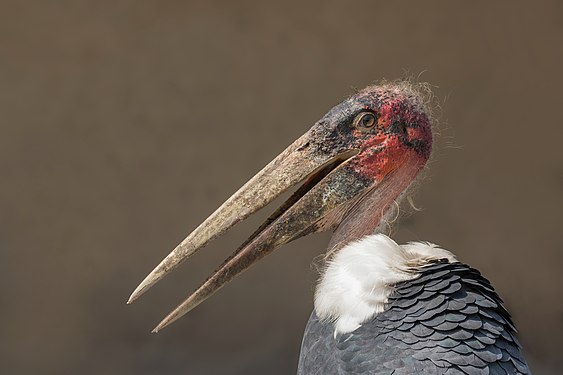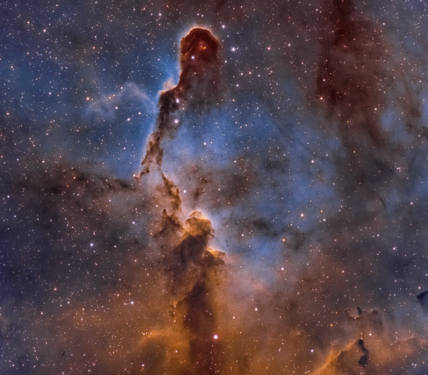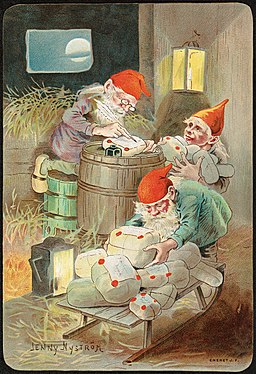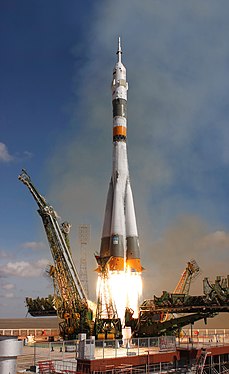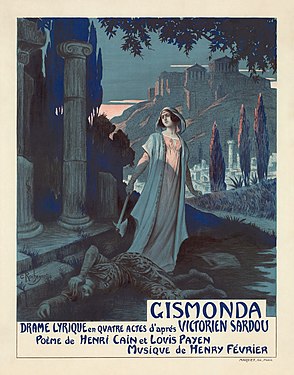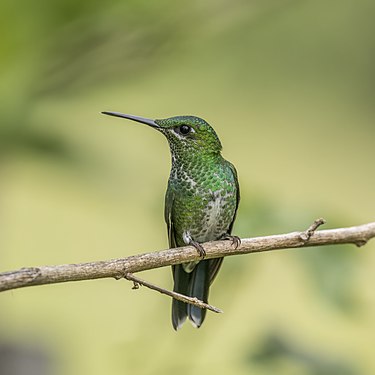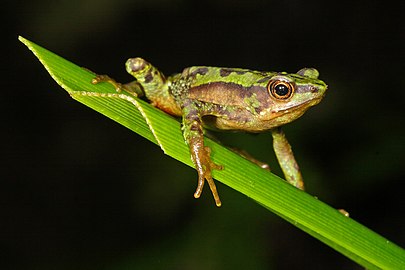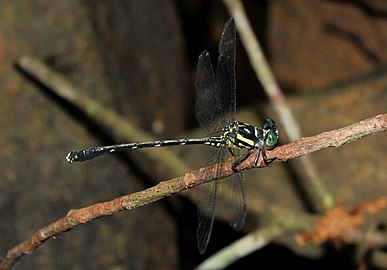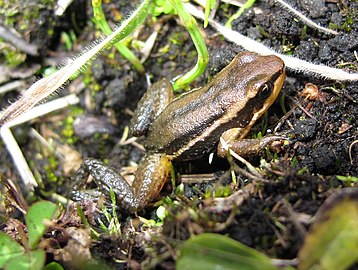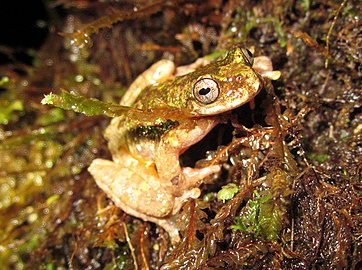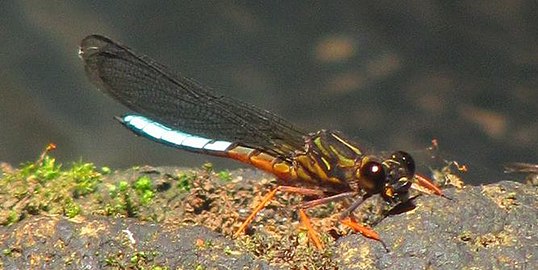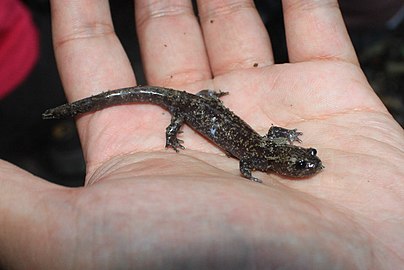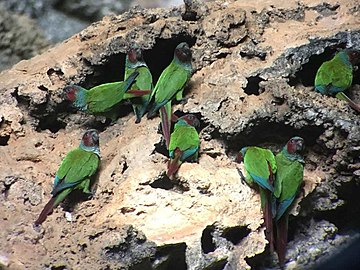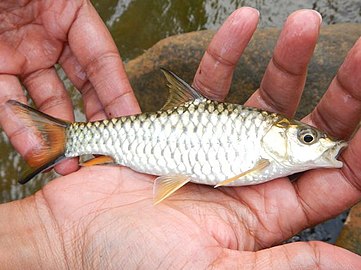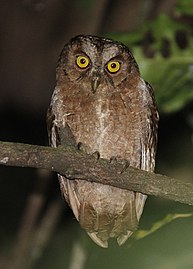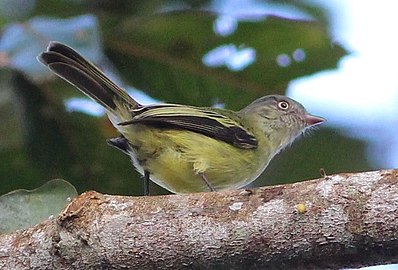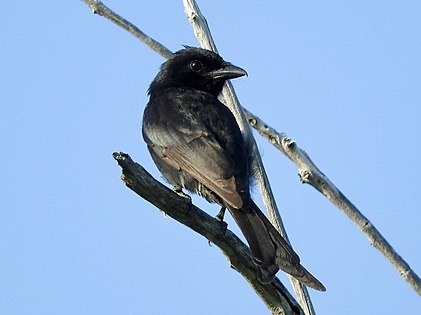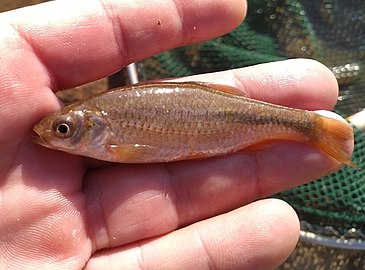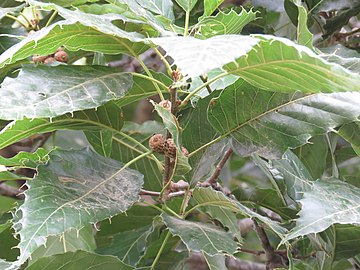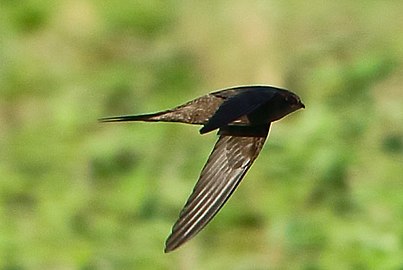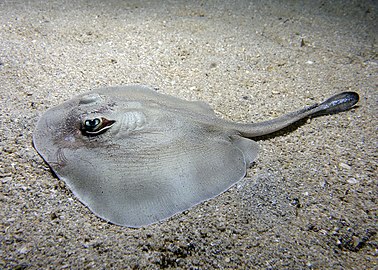Wikipedia and the End of Open Collaboration?
- This article was originally published by Wikipedia@20. The authors have generously allowed The Signpost, and others, to publish it under a CC-BY license.—S
That which enabled Wikipedia to grow and become an invaluable free and open information resource have changed—both within Wikipedia itself and in the wider world. Hill and Shaw ask if there is room for optimism about the future of Wikipedia or open collaboration more broadly.
— The editors of Wikipedia@20
Was Wikipedia a fluke? Just luck? Some freak accident of timing, technology, and vision? Since the project began in January, 2001, no attempt at collaborative knowledge production has produced as large, widely-used, or valuable a public resource. Given its exceptional character, any attempt to explain Wikipedia’s growth and impact—much less draw general insights on how to replicate it—can seem like a fool’s errand.

Wikipedia’s incredible success masks a more complex story. In fact, not even Wikipedia has been able to maintain a stable community of volunteers over the past two decades. Figure 1 shows the number of “active” contributors to eight of the largest language versions of Wikipedia over time. The top left panel shows English Wikipedia’s explosive contributor growth through March 2007 and its transition into a long, slow period of decline. The other panels show similar patterns across the seven largest Wikipedia language versions measured by contributor base. Readership and other uses of Wikipedia have increased steadily over the period shown. As scholars of open collaboration and as concerned contributors to, and users of, Wikipedia, these dynamics have been the center of much of our research over the last decade.
Although the death of Wikipedia has been foretold many times, the dynamics playing out in the graphs above imply that long-term decline in contributors may be undermining the project from within in important ways. As the contributor bases of most of the large Wikipedia language versions shrink over time, fewer editors means reduced capacity to cover new topics and to maintain high quality content. What future do these projects have? What explains the patterns illustrated in Figure 1? What should Wikipedia and proponents of open collaborations and knowledge do?
Lifecycles of peer production projects
Although no other attempt at collaborative production has produced a knowledge base exactly like Wikipedia, Wikipedia is far from unique. At the heart of Wikipedia lies a model of technology-mediated collaboration called "peer production." Wikipedia did not invent peer production and thousands of other efforts at peer production have occurred. Many of these have used Wikipedia as a model or a source of inspiration. For example, thousands of other wikis—collaboratively written knowledge bases that can be edited and accessed online—have used the same software and organizing principles as Wikipedia to create public information resources on diverse topics. Six such projects hosted by the commercial firm Fandom (formerly known as Wikia) cover such topics as the city of Seattle, crocheting, the book and film series Hunger Games, academic jobs, Star Wars (Wookiepedia), and Starbucks. Each of these projects share a common software infrastructure with Wikipedia and with each other, but they vary in size, goals, contributors, and the sets of rules and norms governing participation. Further afield, other peer production projects that create free and open source software, news communities, and technical support vary even more.
Despite their diversity, some shared patterns also characterize peer production projects. For example, most attempts to create new projects do not amount to much in terms of output or collaborative activity. For every wiki that attracts multiple contributors to create and edit content, many others never attract a single follow-on contributor. This is true of other kinds of peer production projects as well. The rare, successful attempts to build large-scale collaborations also share a lot in common with Wikipedia in terms of how they organize the production of knowledge. For instance, clear founding visions, a core of committed early-stage participants, and strong cultural norms about what constitutes high quality outputs (a good encyclopedia article, for example) help differentiate the projects that grow from those that do not.

Strikingly, many larger and longer-lasting peer production projects seem to unfold over time in ways that are similar to Wikipedia. Figure 1 shows how the patterns of growth and decline seen in the contributor base of English Wikipedia are surprisingly general across different language Wikipedia versions. A similar dynamic is evident in Figure 2 which shows the number of active contributors to the largest 740 wikis hosted by Fandom/Wikia over the first five years of each wiki's history.[1] To allow for comparison across communities of different sizes, the y-axis shows a standardized measure of the number of active contributors calculated as a proportion of the monthly average for each community.
Figures 1 and 2 provide evidence of general lifecycle dynamics and undermine two common explanations for English Wikipedia's decline in contributor base. First, wikis with vastly different numbers of speakers/readers around the world all seem to "peak" after a few years. This implies that Wikipedia’s rise and decline is not simply because the community has already written everything or exhausted the pool of potential contributors. Compared to English Wikipedia, Spanish Wikipedia and Hindi Wikipedia contain a small fraction of the number of articles and are edited by a fraction of the number of the language speakers. Still, they exhibit similar patterns of growth and decline. Second, the fact that the communities seem to peak at different points in time makes it unlikely that some single external factor can explain the dynamic. For example, English Wikipedia happened to enter its decline around the time that Facebook grew to massive popularity. But other communities peaked at later dates.
Lifecycle dynamics driven by forces operating within communities offer a simple explanation for the similar patterns across diverse projects, languages, communities, cultures, times, and places. However, if communities have lifecycles, what forces drive them? What determines whether a community finds itself in a growth phase or a period of decline or stabilization? A partial explanation derives from the reasons why Wikipedia and other projects grew in the first place.
Some early scholars and proponents of peer production have suggested that peer production projects like Wikipedia grew because they were organized around deeply "open" institutions. Institutions, according to social scientists, are the written and unwritten rules that govern how people interact in the world. From an institutional perspective, Wikipedia was incredibly open in its early days in that it had porous boundaries and very little in the way of formal rules. Even today, almost anybody can join Wikipedia with no more than a click of the edit button. This openness—a lack of what you might call “organizational structure”—made it much simpler to join the projects and contribute. Many other large peer production projects began as similarly open institutions. By lowering the transaction costs associated with collaborative production, open institutions may have catalyzed the growth of peer production communities, leading to the initial phase of accelerating contributions in projects that manage to attract a critical mass of participants.[2]
Over time, the initial openness of these communities seems to shift. A body of recent research—including a number of studies that we have conducted—suggests that the decline in contributors in both English Wikipedia and a range of other peer production projects has been driven by an increase in newcomer rejection that results in a decrease in newcomer retention.[3] In general, it appears that peer production projects' decline is not primarily a function of a decrease in potential contributors, but of existing community members turning away newcomers at an increasing rate. In other words, Wikipedia and its cousins are declining precisely because they seem to have moved from a more open model of collaboration to one that is more "closed".
Why are peer production communities becoming more closed in ways that cut off the contributions that sustain them? In our own research over the last several years, we have demonstrated that organizational closure typically emerges in reaction to real threats that communities face. In English Wikipedia, these threats include surges in vandalism.[4] Vandalism of Wikipedia articles can be relatively innocent and goofy—like a campaign to edit the actor Jeremy Renner’s biography so that it claimed that he is a velociraptor. It can also be profound in its consequences—like the vicious hoax made by editing the journalist and statesman John Seigenthaler’s biography to suggest he had been implicated in RFK’s assassination.[5] Other types of edits may damage the reputation of the community and degrade the trustworthiness of the content it produces. For example, the outdoor apparel brand North Face worked with an advertising firm to replace images on Wikipedia of notable parks, waterfalls, and other outdoor sites with pictures that prominently displayed the company’s gear.[6] Multiple public relation firms offer services that involve surreptitiously scrubbing Wikipedia pages of true information a client does not want mentioned in public.[7]

The threat of vandalism on Wikipedia has increased enormously over time. Figure 3 shows estimates of the percentage of “damaging” edits to English Wikipedia over a period of 9 years.[8] The figure paints a stark picture and suggests that the proportion of damaging edits increased enormously from only 5% in 2001 through 2004 to around 30% (between 20,000 and 40,000 damaging edits per day) in 2007 around the time that Wikipedia’s active contributor base peaked. These data suggest that Wikipedia’s increased rates of newcomer rejection should be understood, at least in part, as reactions to very real increases in both the amount and proportion of bad stuff coming in the door.
Again, this pattern repeated in a range of other wikis.[9] This suggests that this rise and decline pattern reflects a durable features of peer production organizations rather than a pathology of Wikipedia. Across many peer production projects, we find early periods of growth followed by increases in attacks and low quality contribution followed by increases in rejections of good-faith and newcomer contributions in response. Declining contributor bases appear as an indirect effect of increases in the need to create, monitor, and maintain quality. Although communities can respond to threats in ways that incur more or less collateral damage, the success of a collaborative project predicated on openness leads to an influx of damaging contributions which leads to difficult decisions that communities must make. Institutional closure provides a way to protect the resources that communities have built.
We believe that dynamics of growth and decline peer production suggest a trade-off at the heart of Wikipedia’s experience over the last twenty years. When Wikipedia was an obscure hobbyist encyclopedia project, there was little incentive to vandalize it. In the early days, there was little incentive for firms like The North Face to launch a surreptitious product placement campaign in its illustrations. In both cases, few people would see any given change and few people would care. Wikipedia’s enormous success created the incentives for vandals and firms like North Face who feel they can co-opt Wikipedia to their own benefit.
Over the last twenty years, Wikipedia has shifted away from a model where it was exclusively focused on building a knowledge base through widespread engagement. Today, that goal remains but it must be balanced against a second goal of maintaining the quality of the knowledge base that Wikipedia has amassed against a set of increasingly determined attacks caused by its growing importance. Where Wikipedia could previously rely on policies of openness, the need to maintain quality means that it has to turn toward new policies of closure and the formalization of boundaries, rules, and routines.
Lifecycle of the peer production model
Peer production includes much more than wikis. OpenStreetMap provides detailed, high quality maps and StackExchange provides hundreds of question and answer sites that resolve thousands of inquiries every day. The products of free/libre open source software (FLOSS) communities, GNU/Linux operating systems run most servers and mobile telephones. In citizen science, the collaborative bird-monitoring database eBird includes contributions from a network of nearly half a million birders.[10] Although we have not studied these communities in depth, some evidence indicates that the lifecycle dynamics we’ve found in wikis extend to many of these other peer production projects as well. For example, in FLOSS communities that predate Wikipedia by nearly a decade, patterns of growth, maturity, and decline are common.[11] This wider ecosystem has shifted away from the sort of open organizations that characterized early-stage peer production.
Until 2009 or so, much of mass collaboration online occurred in peer production communities. Closed alternatives were attempted too, but they rarely succeeded during this period. For example, Wikipedia was preceded by a series of less open forms of encyclopedia projects. They were also much less successful. Wikipedia’s two founders, Jimmy Wales and Larry Sanger, famously created Wikipedia as an experiment that would produce content to feed into a more tightly managed and expert-authored encyclopedia project called Nupedia. With a body of rules designed to ensure high quality articles vetted by experts, Nupedia famously failed to attract more than two dozen articles before folding. Wikipedia succeeded because it was structured openly.[12]
Just as community-based forms of collaborative production took off, experimentation also led to the creation of new organizational forms for building and sustaining information goods in other ways. Many of these forms were inspired by peer production, but are closed in ways that allow firms to maintain control and extract value. For example, Airbnb built the core of its enormous marketplace for housing along very similar lines to a set of “network hospitality” communities that predated it. Both CouchSurfing and Hospitality Club were online communities that predated Airbnb and provided ways to connect people who needed a place to stay with strangers who had an extra bedroom or a couch. Both expressly prohibited monetary exchange.
CouchSurfing and Hospitality Club worked in part because they used a series of techniques like peer-to-peer reputation systems based on interconnected networks of reviews and attestations. Intentionally or not, the creators of Airbnb were able to adapt many of these tools to the context of their venture-funded marketplace for “sharing” residential spaces around the world. Ironically, the communities built on non-monetary sharing began to decline right around the same time that the use of Airbnb and the “sharing economy” took off.

Taken from a paper published in 2017, Figure 4 uses data on all verified hosts on Airbnb and CouchSurfing based on when they signed up.[13] The two curves show that the number of Airbnb hosts eclipsed CouchSurfing at about the time that CouchSurfing plateaued and began adding new hosts as a decreased rate. While some portion of CouchSurfing hosts departed for Airbnb, we see this as two distinct processes. CouchSurfing appears to have been on the type of rise and decline trajectory described in the previous section. Airbnb supported a market-based form of network hospitality with a much higher ceiling. Airbnb and other market-based players have, in effect, adapted the tools of mass collaboration from peer production. In many cases, they have done so with much more success than their peer production predecessors enjoyed.
The iPhone App Store provides another powerful example. When Apple launched the iPhone in 2007, users could not install applications. The system built by Apple to keep the iPhone clean of non-Apple software was referred to as a “jail” by early iPhone users. Because iPhone users wanted to write and run custom applications on their smartphones, a large portion of them—a minimum of 25% according to one analyst—would “jailbreak” their phones and install a range of custom applications.[14] Many of these applications were released under free licenses and developed in peer production communities. After failing to prevent jailbreaking through a cat-and-mouse game, Apple eventually created their own App Store. The Apple App Store ensures that anybody can create and disseminate apps in a decentralized way similar to what occurred with the peer-produced software for jailbroken phones.
In the App Store, however, Apple put itself in the middle of every transaction. The company sets policies and decides what software will and will not go into the store. Apple also taxes any financial transactions between iPhone users and app developers. Sure, the software development ecosystem of the Apple App Store is “open” insofar as it creates a porous boundary of software development that extends beyond Apple, but it also remains closed in terms of critical questions of control over the ecosystem. Like Airbnb and Apple, firms have learned to enact strategic closure around critical parts of the online communities producing valuable goods and services collaboratively. They harness decentralized creativity, just like peer production communities do, but manage it to ensure that they preserve control and the ability to extract payments.
At a certain point, the growth of firm-controlled models of distributed collaboration and information exchange comes at the expense of peer production. The peer production model that created Wikipedia was the product of a moment where working openly in commons was the only available technique for building the kind of massive, public knowledge repository that is Wikipedia’s goal. In the ways we have detailed, large firms have found ways of harnessing the kind of open collaboration and community-based organization that made Wikipedia successful without placing the products of this collaboration in open commons or distributing decision-making authority over these communities to participants.
The rise and fall of the organizational form of peer production reflects a second lifecycle dynamic. Although the evidence for this second lifecycle is sketchier, we offer one more piece of anecdotal support in favor of it: the emblematic peer production communities were nearly all created before 2010. Linux was created in 1991; Apache in 1995, Wikipedia in 2001, OpenStreetMap in 2004, and StackExchange in 2009.
Mass collaboration and distributed knowledge sharing on the Internet has hardly slowed down. What has changed is the way that it is occurring. If Wikipedia were created today, we think it much more likely that it would have happened in a market. Which is to say that it would not have been Wikipedia at all.
The future
We could conclude our essay focusing exclusively on the gloom-and-doom side of our story. The largest, most impactful, and most storied peer production communities are past their peaks, at best. Some of the most deeply innovative, public-spirited, and transformative parts of the web that helped build invaluable digital infrastructure relied upon by billions cannot hope to compete with venture-funded and for-profit alternatives that have found ways to enclose and extract resources that might have been shared far more widely. These are fair, accurate interpretations that make us fearful for the future and our collective ability to build a world in which everyone enjoys free access to the sum of all knowledge.
At the same time, we find that thinking about peer production lifecycles in the context of Wikipedia’s first twenty years opens up several strategic opportunities. First, a deeper understanding of the patterns of community development that impact Wikipedia can inform policy interventions aimed at sustaining both the encyclopedic resources it has created and the communities of volunteers who have built them. Second, and in an analogous way, thinking about the past and present trajectories of peer production communities more broadly can justify opportunistic investments in the peer-produced resources that currently exist as well as those that might be created. Open access, peer-produced encyclopedias and other forms of public knowledge have enabled follow-on innovations, wealth, and social benefits that Wikipedia’s founders never saw coming.
The lifecycle dynamics we have described do not mean that Wikipedia is destined to die and disappear or that future efforts like Wikipedia cannot thrive in the future. But in that the conditions that allowed Wikipedia to emerge and grow have shifted, reproducing Wikipedia’s past successes will likely require additional resources and different tactics. With knowledge of the value that Wikipedia has produced in hand, it falls on us to tackle the new challenges of sustaining this value. We must develop new ways of balancing this goal with the goal of continued production. It falls on us to preserve the opportunity for similarly extraordinary collaborative efforts of the future.
- Acknowledgments: This work was supported by the National Science Foundation (awards IIS-1617129 and IIS-1617468).
Notes
- ^ a b The figure is reproduced from Nathan TeBlunthuis, Aaron Shaw, and Benjamin Mako Hill, “Revisiting ‘The Rise and Decline’ in a Population of Peer Production Projects,” in Proceedings of the 2018 CHI Conference on Human Factors in Computing Systems (CHI ’18) (New York, NY: ACM, 2018), 355:1–355:7, https://doi.org/10.1145/3173574.3173929.
- ^ Yochai Benkler, “Coase’s Penguin, or, Linux and ‘The Nature of the Firm’,” The Yale Law Journal 112, no. 3 (December 2002): 369, https://doi.org/10.2307/1562247; Yochai Benkler, The Wealth of Networks: How Social Production Transforms Markets and Freedom (New Haven, CT: Yale University Press, 2006).↩
- ^ Aaron Halfaker et al., “The Rise and Decline of an Open Collaboration System: How Wikipedia’s Reaction to Popularity Is Causing Its Decline,” American Behavioral Scientist 57, no. 5 (May 1, 2013): 664–88, https://doi.org/10.1177/0002764212469365.
- ^ TeBlunthuis, Shaw, and Hill, “Revisiting ‘The Rise and Decline’ in a Population of Peer Production Projects.
- ^ John Seigenthaler, “A False Wikipedia ‘Biography’,” USA Today, November 30, 2005, https://usatoday30.usatoday.com/news/opinion/editorials/2005-11-29-wikipedia-edit_x.htm; Katherine Q. Seelye, “Snared in the Web of a Wikipedia Liar,” New York Times: 4, December 4, 2005, https://www.nytimes.com/2005/12/04/weekinreview/snared-in-the-web-of-a-wikipedia-liar.html.
- ^ Sarah Mervosh, “North Face Edited Wikipedia’s Photos. Wikipedia Wasn’t Happy,” The New York Times: Business, May 30, 2019, https://www.nytimes.com/2019/05/30/business/north-face-wikipedia-leo-burnett.html.
- ^ Rebecca Lefort and Ben Leapman, “MPs Accused of Wikipedia Expenses ‘Cover-up’,” May 8, 2010, https://www.telegraph.co.uk/news/newstopics/mps-expenses/7696484/MPs-accused-of-Wikipedia-expenses-cover-up.html; Michael Cieply, “Wikipedia Pages of Star Clients Altered by P.R. Firm,” The New York Times: Business, June 22, 2015, https://www.nytimes.com/2015/06/23/business/media/a-pr-firm-alters-the-wiki-reality-of-its-star-clients.html; Liz Alderman, “Bell Pottinger, British P.R. Firm for Questionable Clients, Collapses,” The New York Times: Business, September 12, 2017, https://www.nytimes.com/2017/09/12/business/bell-pottinger-administration.html.
- ^ Visualization and new analysis of data shared by Halfaker et al., “The Rise and Decline of an Open Collaboration System.”
- ^ TeBlunthuis, Shaw, and Hill, “Revisiting ‘The Rise and Decline’ in a Population of Peer Production Projects.”
- ^ Team eBird, “eBird 2018—Year in Review,” eBird, December 21, 2018, https://ebird.org/news/ebird-2018-year-in-review.
- ^ Charles M. Schweik and Robert C. English, Internet Success: A Study of Open-Source Software Commons (Cambridge, MA: MIT Press, 2012).
- ^ Benjamin Mako Hill, “Almost Wikipedia: What Eight Early Online Collaborative Encyclopedia Projects Reveal About the Mechanisms of Collective Action.” in Essays on Volunteer Mobilization in Peer Production (Cambridge, Massachusetts: Massachusetts Institute of Technology, 2013).
- ^ Maximilian Klein, Jinhao Zhao, Jiajun Ni, Isaac Johnson, Benjamin Mako Hill, and Haiyi Zhu, “Quality Standards, Service Orientation, and Power in Airbnb and CouchSurfing,” Proceedings of the ACM on Human-Computer Interaction 1, no. CSCW (2017): 58:1–58:21, https://doi.org/10.1145/3134693.
- ^ Tom Krazit, “Apple: 250,000 iPhones Bought to Unlock,” CNET, October 23, 2007, https://www.cnet.com/news/apple-250000-iphones-bought-to-unlock/; Ethan Mollick, “Filthy Lucre? Innovative Communities, Identity, and Commercialization,” Organization Science 27, no. 6 (December 1, 2016): 1472–87, https://doi.org/10.1287/orsc.2016.1100.
Some strange people edit Wikipedia for money
Jimbo did not endorse a paid editing company
Paul Blanchard, a UK PR guru for the rich and famous, is not feeling very well these days. He’s taken legal action against The Times, the UK's newspaper of record. The Times, on June 6 published "PR guru Paul Blanchard 'wasted charity money and failed to pay his staff'" (paywall), which included a laundry list of accusations:
- His firm took £50,000 for PR work from a charity, but delivered "very little in return for the money and he provided no evidence for how the funds were being used."
- He cruelly abused his employees, e.g. mocking one employee’s disabled child.
- He owes former employees large amounts in back wages, going back to 2015 in one case.
- He proposed to a client that "he could engage a contact at the Cabinet Office to help secure him a knighthood." Note that buying or selling knighthoods and similar honors in the UK is illegal, but The Times does not claim that Blanchard’s proposal went that far.
A second story "PR boss Paul Blanchard taped saying he did not like Jews" (paywall), published July 29 in The Times states that Blanchard was recorded making both antisemitic and anti-gay comments. Blanchard’s explanation to The Times was "I said it to 'win' the dare, not to be homophobic or antisemitic. If you hear the recording you can clearly tell I am being ironic, and mocking people who hold these views."
Similar stories were published by The Sun ("NO HONOUR, PR firm boasted it could ‘win Damehood for celebrity author for £80,000’ in leaked emails") and Pink News ("PR boss claims it’s 'ridiculous' to say he’s homophobic or antisemitic after being recorded saying he 'doesn't like gays or Jews'").
The Signpost will not add to Blanchard’s troubles, beyond noting that his firm ran a Wikipedia paid editing service and did not have its paid editors declare their paid status. The surprising part of the website which advertised their service is that it used the name and a photo of Jimmy Wales, apparently to promote the paid editing service. The website is archived here.
After The Signpost emailed Wales about the matter, Wales contacted Blanchard, and the website was removed within a few hours. Following multiple requests for comment to Blanchard and his office, we were informed that Blanchard was unable to respond for the next week, on the advice of his doctor.
Wirecard collapse
Wirecard was a payment processor, currently being liquidated, which discovered in June that it did not have €2 billion in its bank accounts. The money may never have been received and existed only as a bookkeeping entry.
According to The Wall Street Journal "Germany Asks Russia to Help Find Former Wirecard Executive" (paywall) the former CEO was arrested in late June and released on a €5 million bond. Later, he was re-arrested on fraud charges. Two other executives were also arrested and others are under investigation. The former COO is believed to be hiding in Russia. One aspect of the collapse is especially interesting: the company appeared to not only invent cash in their bank accounts from thin air, but also padded their list of business partners, according to The Wall Street Journal, "Wirecard Boasted of Hundreds of Partnerships. Some Were Less Than Meets the Eye" (paywall). News releases announcing new partnerships were demanded regularly by Wirecard executives. The WSJ states "Some (employees) joked internally that these releases were Wirecard’s real product."
Did this "product" include Wikipedia editing by Wirecard employees? Apparently so. User:Wirecard AG and User:Wirecard both edited Wikipedia's Wirecard article. Neither were very successful, with User:Wirecard AG making a single edit where he removed criticism of the firm sourced to the Financial Times. User:Wirecard, who changed his username to User:John from Wirecard, only made eleven edits, the first of which was a complete rewriting of the article, dropping over a dozen names of purported partners and listing 18 subsidiaries. He was blocked for using a promotional username. In his unblock request on his user page he stated that
I am a Wirecard employee and have never used and will never use this transparently named "Wirecard" account for anything other than a) a logo update (which I tried to do here) or b) to update current business numbers that have been officially declared in Wirecard's annual report. I have never and will never make any changes to any text on Wikipedia.
which obviously included some false information. He was then indefinitely blocked for promotional editing.
Wikipedia's administrators appeared to react quickly in this case. But did they catch all the Wirecard employees who were editing the article? It's impossible to say, but it should be noted that the article was largely promotional into late June, even after the firm had filed for insolvency, see e.g. this version. (Disclosure: Smallbones has edited the Wirecard article since late June).
Ghislaine sent us a photo?

Ghislaine Maxwell was Jeffrey Epstein's longtime companion, girlfriend, and allegedly a sex criminal who procured teenage girls for Epstein. She apparently sent us a photo in 2011. See this Signpost report for information on Epstein's possible editing of Wikipedia.
Padbob1 uploaded a 2007 photo of Ghislaine Maxwell on August 1, 2011. Confusingly the source and the author were both listed as "Ghislaine Maxwell", even though it’s unlikely that the photo is a selfie. The next day an OTRS request was received, with the ticket confirmed on August 11. Based on the request the OTRS volunteer changed the source to "I.Maxwell" - which is the same initial and surname as those of two siblings of Ghislaine. On the same date, Padbob1 added the photo to the article and removed a reference to an article in the Daily Mail which contained accusations of sex crimes and possible "sessions with teenage masseuses" with Prince Andrew. That was the last of Padbob1's five edits on Wikipedia, which were all on the Ghislaine Maxwell article.
Abstract Wikipedia, a hoax, sex symbols, and a new admin
New WMF project: Abstract Wikipedia
A new project, Abstract Wikipedia, was announced. The project, in a preliminary form, was described by Denny Vrandečić in an article in The Signpost, in the April, 2020 issue.
Wikipedia Weekly on video
Wikipedia Weekly continues its series of videos about current issues in the Wikipedia/Wikimedia universe. Two recent shows, which are now hosted on Commons, accompany this story. Today's edition will take place on YouTube about one hour after publication of The Signpost. Tune in then to participate, or tune in later to see the results of the discussion on the topic Wiki Movement Year by Year, Wikimania 2005 Flashback.
Brief notes
- New user-groups: The Affiliations Committee announced the approval of the newest Wikimedia movement affiliates:
- New Affiliation Committee members were appointed:
- Başak Tosun
- Jeffrey Keefer
- Bunty Avieson
- Suyash Dwivedi
- Ravan Al-Taie
- Camelia Boban (re-appointed)
- Anthony B. Diaz joined as a new adviser.
- New administrator: The Signpost welcomes the English Wikipedia's newest administrator Red Phoenix.
- Hoax mix-up: The Battle of Ceber was briefly deleted on 6 July after being accused of being a hoax, before being restored as merely having no references. A good reminder to ensure your articles have at least one reference to avoid trigger-happiness...
- Our sex symbols are gone: The AfD for List of sex symbols (4th nomination) put the coup de grace on the huge list which had existed since 2004 with a brief break in 2006 after a previous deletion. The page's large revision history meant that the deletion required steward rights. Around the time of the deletion nomination, the list had more than 1000 entries and 1446 citations.
- Oops, I did it again: Another round of forced logouts reported by WMF on July 9 due to "fail[ure] to cover some cases" in the response to last month's security incident
- Citizendium transferred: Larry Sanger announced a change in ownership of the Citizendium domain names, as its contributors continue to discuss shutdown (see previous coverage in The Signpost)
Dog days gone bad
In the dog days of summer, the media often take a break from more serious stories and settle for topics that you might feel comfortable reading about at poolside. Not this summer though. There are three big stories that appear in almost every edition of every newspaper: COVID-19, racial tension, and politics, particularly about the upcoming U.S. presidential election. Stories about Wikipedia's fine coverage of the pandemic continue to be published, and stories on how politics interact with Wikipedia are all too common. Stories about Wikipedia and Black Lives Matter are just a bit rarer. Stories on conflict-of-interest or paid editing on Wikipedia are also common, when they intersect with the topics of the pandemic, politics, or race.
Medical topics on Wikipedia
How volunteers created Wikipedia’s world-beating Covid-19 coverage in The Spinoff avoids being just another article praising Wikipedia's COVID-19 coverage by focusing on the effort in New Zealand. Mike Dickison, New Zealand's first Wikipedian at large, is interviewed and points out that COVID-19 pandemic in New Zealand has been viewed more than a million times. He states that Wikipedia's "got an immune system against falsehood, so it’s actually quite resilient to hoaxing and fake news and bad information."
Wikipedia, The Free Online Medical Encyclopedia Anyone Can Plagiarize: Time to Address Wiki-Plagiarism links to an academic paper by Michaël R. Laurent showing five cases of medical journals plagiarizing from Wikipedia. Unfortunately, Laurent's paper is paywalled.
UN recognises Malayali researcher's fight against COVID-19 misinformation in The New Indian Express.
Politics and race on Wikipedia
There's a War Going on Over Kamala Harris's Wikipedia Page with Unflattering Elements Vanishing according to The Intercept. Harris is widely considered a front-runner to be chosen as Joe Biden's Vice Presidential running mate. They noted that Bnguyen1114 had edited the article on the potential Democratic vice-presidential nominee hundreds of times, with The Intercept suggesting that the edits would make her a more palatable candidate for progressive Democrats. We note that Bnguyen1114 says that he was doxxed on Twitter.
Bnguyen1114 later declared at WP:COIN that he has volunteered for several Democratic candidates' campaigns and many other details of his motivations in editing. "I mean seriously, I'm an open book, people." He was then topic banned from the article. There is little or no evidence that he is a paid editor.
Other coverage included the San Francisco Chronicle's online site SFGate and Fox News [1].
CNN on Wikipedia on Fox
Last week CNN reported on an RfC about Fox News's reliability as a source. CNN reported the three closers' RfC summary as "Use of Fox News in these two areas [science and politics], however, will be carefully scrutinized; it can still be used, but likely only when there are additional sources to corroborate or if it is clearly marked as opinion or biased. In other words, prior to this discussion an editor would need to make an argument why not to use a Fox News source, but now the expectation that any disputes will require the person wanting Fox to be the primary source/reference will have to make the argument for inclusion."
Arabella by Arabella?
Wikipedia's article on Arabella Advisors was being influenced by MaryGaulke, a paid editor, according to Lachlan Markay in the Daily Beast. Arabella, an organization funding liberal causes, had hired Gaulke. She targeted "excerpts on the page sourced to conservative news organizations and a leading good-government watchdog group." Gaulke has identified herself on her user page and on the Arabella Advisors talk page as being a paid editor but did not edit the article itself, consistent with Wikipedia's rules. On the talk page she requested the removal of parts of the article which were sourced from the Center for Responsive Politics, a non-partisan watchdog group, the Washington Free Beacon, a very conservative newspaper, and the Daily Signal, the media arm of the conservative Heritage Foundation. Markay's story was picked up by the Washington Free Beacon. Markay previously worked for the Washington Free Beacon and the Heritage Foundation.
NYPD editing revisited
Gizmodo, following evidence provided by a Twitter bot @NYPDedits, states with few or no reservations, that IP accounts from the New York City Police Department have whitewashed Wikipedia's article on the department. The editing changed the large second paragraph of the article from text like:
- "The NYPD has an extensive history of police brutality, misconduct, and corruption, as well as discrimination on the basis of race, religion and sexuality. Critics, including from within the NYPD, have accused the NYPD of rampantly manipulating crime statistics (“juking the stats”)."
- to
- "The NYPD has an extensive history of reducing crime in the most diverse city in the country. The Operation impact program, which placed new police officers in high crime areas to combat the growing street violence using the broken windows theory was reformed in January of 2014."
The Daily Dot reported on the same story the next day with almost the same level of certainty. The Signpost has rarely, if ever, seen a more obvious case of conflict of interest editing.
Capital New York published a similar story on the NYPD five years ago as Edits to Wikipedia pages on Bell, Garner, Diallo traced to 1 Police Plaza. The NYPD edits to the articles on Eric Garner, Sean Bell, and Amadou Diallo were more serious than even the current NYPD edits, according to Gizmodo, but that "the intent to erase wrongdoing on the part of cops is identical."
Is paid editing an ethics violation or a conflict of interest?
A report in the Charleston City Paper says that Sheriff Al Cannon of Charleston County, South Carolina hired an employee of the sheriff's office to write his biography on Wikipedia for $500, according to a July 7 report filed by Cannon's election campaign with the South Carolina Ethics Commission. Cannon's campaign paid the money to the office's social media coordinator according to his immediate superior, in an "off-duty capacity, not paid by county funds." Since the writer was off-duty, it appears that neither he nor Cannon violated South Carolina ethics laws. The author did declare a conflict-of-interest on his user page, and then on July 11 a declaration of paid editing. Cannon's election opponent, Kristin Graziano was forced to leave her job as sheriff's deputy by Cannon after he found out that she intended to run against him. Cannon wrote that the situation would create an "inherent and irreconcilable conflict of interest."
"Boris Johnson criticises Oxford decision to remove Rhodes statue" as reported in The Guardian. The governing body of Oxford University's Oriel College has voted to remove a statue of Cecil Rhodes. British Prime Minister Boris Johnson said "If we go around trying to bowdlerise or edit our history in this way, it’s like some politician sneakily trying to change his Wikipedia entry." The Signpost requests that if the Prime Minister has any information on a politician trying to change "his Wikipedia entry", that Johnson should report this to us.
"Wikipedia war over Henry Dundas slavery role", in The Times (paywall). It's probably just an honest difference of opinion, but few edit wars on Wikipedia make it into The Times. In any case, the statue of Henry Dundas atop his column in Edinburgh looks a bit more shaky these days. Two Wikipedians prolonged the battle in the Times' comments section, focusing on the role of "squatters" (article ownership).
An IRA funeral
"Bobby Storey funeral: Wikipedia a battleground over IRA man’s memory as over 70 edits made". The funeral of Bobby Storey, IRA freedom fighter (as some insist) or terrorist (as others insist) prompted an edit war.
Wikipedia case studies
TechDirt presents a series of case studies on content moderation on different websites. This month two case studies about Wikipedia were added. Content Moderation Case Study: Can An Open Encyclopedia Handle Disinformation? (2005) about the Wikipedia Seigenthaler biography incident covers the case when John Seigenthaler, a respected journalist, was falsely accused of being involved in political assassinations in a Wikipedia article. TechDirt lists four decision options that Wikipedia could have made, as well as four questions on the implications of possible policy changes. Finally the controversy is described as partially solving itself by attracting many editors to the article. The ability of new editors to create articles was curbed and a new policy on biographies of living persons was created.
The second content moderation case study this month Dealing With Misinformation In Search (2004) is about googlebombing in which links to Wikipedia turn out to be a small part of the solution.
A case published in 2019 The Wikimedia Foundation Asks The European Court Of Human Rights To Rule Against Turkey's Two-Year Block Of All Wikipedia Versions was written at the time the WMF took Turkey to court. The resolution - that the WMF won the case and all Turks were allowed access to Wikipedia sites - must have surprised the case writer, who viewed the court case as a symbolic or superficial response, bound to fail as a practical matter.
Google and our "managers"
"Google Search Upgrades Make it Harder for Websites to Win Traffic". Google's search results now include more paid ads and more links to other Google sites, with more than half of the searches sending readers to another Google site. Their parent, Alphabet Inc., had 2019 revenues of $162 billion and 2019 net income of $34 billion. This situation is making it harder or more expensive for advertisers, SEO firms, and other business websites to attract traffic. It may also be getting harder for Wikipedia. "Wikipedia managers", likely meaning WMF staffers, are worried that Wikipedia has not always been properly credited as the source of Google's knowledge panel: "We regularly consider the impact of third-party use of Wikipedia’s information, especially as the public increasingly consumes content outside our sites .... we’ve worked with Google over the years to improve the way they credit content from Wikipedia in the knowledge panel so that the public clearly knows when they’re reading information from Wikipedia," according to an anonymous "manager" quoted by Bloomberg News (via AdAge [2]).
In brief
- "You Can Download the Entirety of English Wikipedia to Browse Offline" in Vice. A new 89 GB snapshot is available, compatible with an offline browser.
- Smithsonian Institution promotes editathons "Women in Science on Wikipedia" (SI Archives blog, July 7).
- Bollywood time travel? "Here's the truth behind Sushant Singh Rajput's Wikipedia page 'revealing his death before it happened'" in DNA India. The truth is that Wikipedia edits are recorded using the UTC time code, not local Indian time.
Fox News, a flight of RfAs, and banning policy
In brief
- WP:Village pump (proposals)#Proposed: a massive automated invasion of privacy for the greater good (proposed by BD2412), suggesting automated sockpuppet detection by machine learning/bot, has tens of editors in attendance, and at least one proposal for seven-dollar-figure WMF project. Also, a project that WMF already has under way is arguably functionally equivalent to the proposal, and another effort by an individual unnamed checkuser exists:
some smaller version of the behavioural analysis ... is being worked on by a CU on another project as a tool
. - The paid editing firm Wiki Professionals has been banned by the community (see RfC closure and/or shortcut WP:WIKIPRO). They are also called by many other names, including Get Wikified.
- An RfA "flight" has been proposed. The plan is for multiple users to run for adminship at around the same time in order to reduce the stress on individual nominees. This stemmed from this discussion, which also addressed RfA reform with an ArbCom-like voting process across a roster of candidates.
- There is a proposal to get rid of stub tags; it was created in June, but is still open at the time of writing.
- One resysop request by an admin who was desysopped for inactivity led to some controversy on the bureaucrats' noticeboard. The user would have been eligible to be resysopped under the criteria in place when his administrator rights were removed, but he was deemed to be no longer eligible due to the resysop criteria being tightened in 2019.
- There is a proposal on WT:Banning policy to increase the minimum length of discussions on whether an editor should be site-banned from 24 hours to a longer period (such as 48 hours, 72 hours, or 7 days).
Recently-closed discussions
- The former speedy deletion criterion T2 (prohibiting "Templates that are unambiguous misrepresentations of established policy, e.g. disclaimer templates intended to be used in articles and speedy-deletion templates for issues other than speedy-deletion criteria") has been removed following a community discussion.
- The RfC on Fox News's reliability has been closed by 3 admins, with the following results:
- Reporting of Fox-TV's affiliate stations (such as New York City's WNYW) is generally reliable.
- There is no consensus regarding the reliability of the Fox News Channel and foxnews.com with regard to politics and science.
- Fox News Channel and foxnews.com should be considered generally reliable in all other areas.
- The RfC specifically did not discuss the reliability of Fox News opinion programs (such as Hannity) so there is no change as to the community consensus in that area. See WP:FOXNEWS for a summary.
Remembering Art, Valor, and Freedom
Featured articles
31 featured articles were promoted this period.
- Lewis (nominated by Therapyisgood) was a professional baseball player who played in one career game with the Buffalo Bisons of the Players' League (PL) on July 12, 1890. After asking the Bisons manager for a tryout and pitching three innings, his earned run average (ERA) of 60.00 and walks plus hits per inning pitched (WHIP) rate of 6.667 became the highest in the history of the PL. As of May 2020, Lewis's first name, date of birth, and batting and pitching stances are unknown.
- Rigel (nominated by Lithopsian, Attic Salt, and Casliber) is a blue supergiant star in the constellation of Orion, approximately 860 light-years (260 pc) from Earth. Rigel is the brightest and most massive component—and the eponym—of a star system of at least four stars that appear as a single blue-white point of light to the naked eye. A star of spectral type B8Ia, Rigel is calculated to be anywhere from 61,500 to 363,000 times as luminous as the Sun, and 18 to 24 times as massive, depending on the method and assumptions used.
- The vermilion flycatcher (nominated by CaptainEek) is a small passerine bird in the tyrant flycatcher family found throughout South America and southern North America. It is a striking exception among the generally drab Tyrannidae due to its vermilion-red coloration. The males have bright red crown, chests, and underparts, with brownish wings and tails. Females lack the vivid red coloration and can be hard to identify—they may be confused for the Say's phoebe. Riparian habitats and semi-open environments are preferred. As aerial insectivores, they catch their prey while flying. Their several months-long molt begins in summer. Populations have declined because of habitat loss, though the species remains abundant. The overall population numbers in the millions, thus the International Union for the Conservation of Nature considers it a species of least concern.
- The 1985 World Snooker Championship (nominated by Lee Vilenski and BennyOnTheLoose) was a ranking professional snooker tournament that took place from 12 to 28 April 1985 at the Crucible Theatre in Sheffield, England. Organised by the World Professional Billiards and Snooker Association (WPBSA), the event was the ninth consecutive World Snooker Championship to be held at the Crucible, the first tournament having taken place in 1977. The winner received £60,000, which was the highest amount ever received by the winner of a snooker event at that time. The defending champion was Englishman Steve Davis, who had previously won the World Championship three times. He met Northern Irishman Dennis Taylor in the final which was a best-of-35-frames match. Davis took an early 8–0 lead, but Taylor battled back into the match and drew level at 17–17, forcing a deciding frame. The 35th frame was contested over the final black ball, with the player able to pot the ball winning the world title. After both players missed the black twice, Taylor potted the ball to win his sole World Championship. The match, often referred to as the "black ball final", is commonly considered to be the best-known match in the history of snooker and a reason for the surge in the sport's popularity in the 1980s and 1990s. The final also holds the record for the most-viewed broadcast in the United Kingdom of a programme shown after midnight, with a peak of 18.5 million viewers for the match's final frame, breaking the existing records for the most-viewed sporting event and BBC2 programme.
- The 2017 EFL Championship play-off Final (nominated by The Rambling Man) was an association football match that was played on 29 May 2017 at Wembley Stadium, London, between Huddersfield Town and Reading. The match determined the third and final team to gain promotion from the EFL Championship, the second tier of English football, to the Premier League. The match was played in front of a crowd of 76,682. It ended goalless in regular time and the deadlock was not broken by the end of extra time. Huddersfield won the final 4–3 on penalties, and their midfielder Aaron Mooy was selected as the man of the match.
- The Battle of Adys (nominated by Gog the Mild) was fought in late 255 BC during the First Punic War between a Carthaginian army and a Roman army. The Romans had successfully invaded Carthage's homeland in North Africa and 15,500 men to hold their lodgement over the winter. These advanced on and besieged the city of Adys. The Romans executed night marches to launch dawn assaults on the Carthaginian army's fortified hilltop camp. One part of this force was repulsed and pursued down the hill. After the other part charged the pursuing Carthaginians in the rear and routed them, the remaining Carthaginians panicked and fled. Despairing, the Carthaginians sued for peace, but the terms Regulus offered were so harsh that they resolved to fight on.
- Erin Phillips (nominated by Sportsfan77777) is an Australian former professional basketball player and an Australian rules footballer for Adelaide. She played nine seasons in the Women's National Basketball Association (WNBA) for five different teams and is a two-time WNBA champion. She also represented Australia on the women's national basketball team, winning a gold medal at the 2006 FIBA World Championship for Women and serving as a co-vice captain at the 2016 Summer Olympics. Additionally, Phillips has played four seasons in the AFL Women's (AFLW) competition, in which she is a two-time premiership player and two-time league best and fairest.
- Sir Fabian Ware (nominated by Eddie891) was a British journalist and the founder of the Imperial War Graves Commission (IWGC), now the Commonwealth War Graves Commission. He travelled to the Transvaal Colony where he became Director of Education in 1903. Two years later he became editor of the British newspaper The Morning Post. In 1916, the Department of Graves Registration and Enquiries was created with Ware at its head. On 21 May 1917 the IWGC was founded and Ware served as its vice-chairman. He ended the war as a major-general. Post-war, Ware was heavily involved in the IWGC's function. When the Second World War broke out, he continued to serve as vice-chairman of the IWGC and was re-appointed director-general of Graves Registration and Enquiries.
- George Gosse (nominated by Peacemaker67) was an Australian recipient of the George Cross. Gosse served in the Royal Australian Navy between 1926 and 1933, and in 1940 joined the Royal Australian Naval Volunteer Reserve. In April 1945 he was given command of a party responsible for mine clearance in the recently captured Bremen Harbour in Germany. He displayed courage in defusing three mines under very difficult conditions between 8 May and 19 May 1945, for which he was awarded the George Cross. He died of a heart condition in 1964 and his medal set is displayed in the Hall of Valour at the Australian War Memorial.
- Hyborian War (nominated by Airborne84) is a play-by-mail game set during the Hyborian Age in the world of Conan the Barbarian within the heroic fantasy genre, also known as sword and sorcery. The game has been continuously available for worldwide play since its inception in 1985 and has changed little in its overall format. Although it relies on postal mail or email and has turnaround times which are relatively long for the digital age of video games, Hyborian War has retained a sizable player base. The game incorporates diverse landscapes and cultures, grand armies, large-scale battles, wizards tipping the scales of power, and stories of courageous and heroic deeds.
- Robert Goff, Baron Goff of Chieveley (nominated by Kohlrabi Pickle) was an English barrister and judge who was Senior Lord of Appeal in Ordinary, the equivalent of today's President of the Supreme Court. Best known for establishing unjust enrichment as a branch of English law, he has been described by Andrew Burrows as "the greatest judge of modern times".
- The Space Shuttle (nominated by Balon Greyjoy) was a partially reusable low Earth orbital spacecraft system that was operated from 1981 to 2011 by the National Aeronautics and Space Administration (NASA) as part of the Space Shuttle program.
- The Beautician and the Beast (nominated by Aoba47) is a 1997 American romantic comedy film directed by Ken Kwapis. It stars Fran Drescher as a New York City beautician who is hired, under the false assumption that she is a science teacher, to tutor the four children of a dictator of a fictional Eastern European nation, played by Timothy Dalton. The film was released on February 7, 1997, to generally negative reviews. Critics panned the story as more appropriate for a sitcom rather than a feature film, and called it a poor example of the romantic comedy genre. Drescher and Dalton received mixed reviews for their performances; Drescher was nominated for the Golden Raspberry Award for Worst Actress. The Beautician and the Beast was a box-office bomb, grossing roughly $11.5 million against a production budget of $16 million.
- The Holocaust in Slovakia (nominated by Buidhe) was the systematic dispossession, deportation, and murder of Jews in the Slovak State, a client state of Nazi Germany. Out of 89,000 Jews in the country in 1940, 68,000 to 71,000 were murdered during the Holocaust. Between March and October 1942, 58,000 Jews were deported to Auschwitz concentration camp and the Lublin district of German-occupied Poland. The persecution of Jews resumed after August 1944, when Germany invaded Slovakia and another 13,500 Jews were deported.
- The Wales national football team is the third-oldest side in international association football. The side played their first fixture in March 1876, four years after Scotland and England had contested the first-ever international match. From 1876 to 1976 (nominated by Kosack) the team developed. They won their first British Home Championship in the 1906–07 tournament, and between the First and Second World Wars saw great success, winning several further championships. After the end of the Second World War they began participating in more international contests, such as the FIFA World Cup. Wales entered a period of decline in the 1960s, though they shared the British Home Championship during the 1969–70 season, bringing their total wins of the championship to twelve.
- The 2020 Masters (nominated by Lee Vilenski) was a professional non-ranking snooker tournament that took place between 12 and 19 January 2020 at the Alexandra Palace in London, England. It was the 46th staging of the Masters tournament, which was first held in 1975, and the second of three Triple Crown events in the 2019–20 season, following the 2019 UK Championship and preceding the 2020 World Snooker Championship. From a total prize pool of £725,000, the winner of the event, Bingham, received £250,000. The tournament featured a total of 18 century breaks; the highest break was a 144 compiled by David Gilbert in the quarter-finals, for which he won £15,000.
- Andreas Palaiologos (nominated by Ichthyovenator) was the eldest son of Thomas Palaiologos, Despot of the Morea. Thomas was a brother of Constantine XI Palaiologos, the final Byzantine emperor. After his father's death in 1465, Andreas was recognized as the titular Despot of the Morea and from 1483 onwards, he also claimed the title "Emperor of Constantinople". Andreas sold his rights to the Byzantine crown in 1494 to Charles VIII of France and died in poverty in 1502.
- The Canada lynx (nominated by Sainsf) is a medium-sized North American cat that ranges across Alaska, Canada and many of the contiguous United States. It is characterized by its long, dense fur, triangular ears with black tufts at the tips, and broad, snowshoe-like paws. Similar to the bobcat (L. rufus), the hindlimbs are longer than the forelimbs, so that the back slopes downward to the front. The Canada lynx stands 48–56 cm (19–22 in) tall at the shoulder and weighs between 5 and 17 kg (11 and 37 lb). The lynx is a good swimmer and an agile climber. This lynx occurs predominantly in dense boreal forests, and its range strongly coincides with that of the snowshoe hare. Given its abundance throughout the range, and no severe threats, the Canada lynx has been listed as Least Concern on the IUCN Red List. This lynx is regularly trapped for the international fur trade in most of Alaska and Canada but is protected in the southern half of its range due to threats such as habitat loss.
- Computer Space (nominated by PresN) is a space combat arcade game developed in 1971. Created by Nolan Bushnell and Ted Dabney in partnership as Syzygy Engineering, it was the first arcade video game as well as the first commercially available video game. Computer Space is a derivative of the 1962 computer game Spacewar!, possibly the first video game to spread to multiple computer installations. It features a rocket controlled by the player engaged in a missile battle with a pair of hardware-controlled flying saucers set against a starfield background. The goal is to score more hits than the enemy spaceships within a set time period, which awards a free round of gameplay. While the game was successful and validated Syzygy's belief in the future of arcade video games, selling over 1,000 cabinets by mid-1972 and ultimately 1,300–1,500 units, it was not the runaway success that Nutting had hoped for. Computer Space's release marked the ending of the early history of video games and the start of the commercial video game industry.
- Ismail I of Granada (nominated by HaEr48) was the fifth Nasrid ruler of the Emirate of Granada on the Iberian Peninsula, from 1314 to 1325. He claimed the throne during the reign of his uncle, Sultan Nasr, after a rebellion started by his father Abu Said Faraj. The war ensuing war with Castile reached its climax in the Battle of the Vega in 1319, a complete victory for Ismail's forces. Ismail followed up his victory with the capture of castles on the Castilian border in 1324 and 1325. He was murdered by his relative Muhammad ibn Ismail.
- Joseph A. Lopez (nominated by Ergo Sum) was a Mexican Catholic priest and Jesuit. Born in Cotija, Michoacán, he studied canon law at the Colegio de San Nicolás and at the Royal and Pontifical University of Mexico. He became acquainted with the future Empress Ana María Huarte, and was made chaplain to the imperial family. He was also put in charge of the education of all the princes in Mexico. Lopez was a close ally of Emperor Agustín de Iturbide, residing in Madrid for four years as his attorney and political informant, and accompanying him during his exile to Italy and England. Following Iturbide's execution in 1824, Lopez moved to the United States with the exiled Empress Ana María and her children, and settled in Washington, D.C. He became the chaplain to the Georgetown Visitation Monastery, and entered the Society of Jesus in 1833, working also as a novice and minister at Georgetown College. When the president of Georgetown College, William McSherry died, Lopez became acting president in 1840, making him the first Latin American president of a university in the United States. As an educator, he garnered a reputation as a strict disciplinarian. Just several months into his presidency, he fell ill and was sent to recuperate in St. Inigoes, Maryland; he died there in 1841.
- Meteorological history of Hurricane Dorian (nominated by Hurricane Noah and KN2731): Hurricane Dorian was the strongest hurricane to affect the Bahamas on record, causing catastrophic damage in the Abaco Islands and Grand Bahama in early September 2019.
- The Partisan Congress riots (nominated by Buidhe) were attacks on Jews by former Slovak World War II partisans in Bratislava and other cities and towns in the Slovak part of Czechoslovakia between 1 and 6 August 1946. Nineteen people were injured, four seriously, in Bratislava alone despite police attempts to maintain order. The contemporary press played down the involvement of partisans.
- William Edward Sanders (nominated by Zawed) was a New Zealand recipient of the Victoria Cross (VC). After the outbreak of World War I he served on troopships until April 1916, when he was commissioned in the Royal Naval Reserve. He was given his own command, HMS Prize, in February 1917. Sanders was awarded the VC for his actions while on his first patrol as captain, when Prize engaged and drove off a German U-boat that had attacked and damaged the ship. He was killed in action when Prize was sunk by a U-boat on her fourth patrol.
- Five Go Down to the Sea? (nominated by Ceoil) were an Irish post-punk band from Cork, active from 1978 to 1989. Vocalist and lyricist Finbarr Donnelly, guitarist Ricky Dineen and brothers Philip O'Connell (bass) and Keith "Smelly" O'Connell (drums) formed the band as 'Nun Attax' when they were teenagers. They became known for Donnelly's absurdist, surreal lyrics and stage presence, Dineen's angular guitar and bass parts, and the Captain Beefheart-style rhythm section. The group later included guitarists Mick Finnegan (1979), Giordaí Ua Laoghaire (1979 to 1980) and Mick Stack (1982 to 1985), and cellist Úna Ní Chanainn (1982 to 1983). Although the band only released four EPs and did not sell many records, their reputation has grown over time.
- Nasr of Granada (nominated by HaEr48) was the fourth Nasrid ruler of the Emirate of Granada from 14 March 1309 until his abdication on 8 February 1314.
- James Ashley (nominated by HJ Mitchell) was a British man shot dead by police at his flat in St Leonards-on-Sea, East Sussex, on 15 January 1998, while unarmed and naked.
- The Commissioner Government (nominated by Peacemaker67) was a short-lived Serbian collaborationist puppet government established in the German occupied territory of Serbia within the Axis-partitioned Kingdom of Yugoslavia during World War II. It operated from 30 April to 29 August 1941 and was headed by Milan Aćimović. It was pro-German, anti-Semitic and anti-communist and acted as an instrument of the German occupation regime. The government actively assisted the Germans in exploiting the population and the economy, and its members regarded their own participation in the Holocaust as "unpleasant but unavoidable."
- Bayern Munich 1–2 Norwich City (1993) (nominated by The Rambling Man & Dweller & Harrias) The football match between Bayern Munich and Norwich City was played at the Olympiastadion, Munich, on 19 October 1993 as part of the second round of the 1993–94 UEFA Cup and finished in a 2–1 victory for the English side. The result was a huge upset in European football; it was the only victory by a British club against Bayern Munich in their Olympiastadion.
- Leeches (nominated by LittleJerry & Chiswick Chap & Cwmhiraeth) are segmented parasitic or predatory worms that belong to the phylum Annelida and comprise the subclass 'Hirudinea'. They are closely related to the oligochaetes, which include the earthworm, and like them have soft, muscular, segmented bodies that can lengthen and contract. The majority of leeches live in freshwater habitats, while some species can be found in terrestrial and marine environments. The best-known species, such as the medicinal leech, Hirudo medicinalis, are hematophagous, attaching themselves to a host with a sucker and feeding on blood, having first secreted the peptide hirudin to prevent the blood from clotting. The jaws used to pierce the skin are replaced in other species by a proboscis which is pushed into the skin. A minority of leech species are predatory, mostly preying on small invertebrates. Leeches have been used in medicine from ancient times until the 19th century.
- Gigantorhynchus (nominated by Mattximus) is a genus of thorny-headed worms, also known as spiny-headed worms, that parasitize marsupials, anteaters, and possibly baboons by attaching themselves to the intestines using their hook-covered proboscis.
Featured lists
21 featured lists were promoted this period.
- 2019 in cue sports (nominated by Lee Vilenski) The year of 2019 included professional tournaments surrounding table-top cue sports. These events include snooker, pool disciplines and billiards. Whilst these are traditionally singles sports, some matches and tournaments are held as doubles, or team events. The snooker season runs between May and April, whilst the pool and billiards seasons run in the calendar year. Four men's adult world championships were held in 2019, with Judd Trump winning the World Snooker Championship, Ko Ping-chung winning the WPA World Ten-ball Championship, nine-ball by Fedor Gorst and the World Billiards Championship by Peter Gilchrist respectively. Women's world championships featured a World Snooker Championship won by Reanne Evans and the World Billiards Championship won by Anna Lynch. The events in this list are professional, pro-am, or notable amateur cue sports tournaments from the year of 2019.
- In Major League Baseball (MLB), the 20–20–20 club (nominated by Bloom6132) is the group of batters who have collected 20 doubles, 20 triples and 20 home runs in a single season. In total, seven players are members of the club.
- The 90th Academy Awards (nominated by Birdienest81) ceremony, presented by the Academy of Motion Picture Arts and Sciences (AMPAS), honored the best films of 2017, and took place at the Dolby Theatre in Hollywood, Los Angeles, California.The Shape of Water won four awards, including Best Picture. Other winners included Dunkirk with three awards, Blade Runner 2049, Coco, Darkest Hour, and Three Billboards Outside Ebbing, Missouri with two awards, and Call Me by Your Name, Dear Basketball, A Fantastic Woman, Get Out, Heaven Is a Traffic Jam on the 405, I, Tonya, Icarus, Phantom Thread, and The Silent Child with one.
- The England cricket team represents England and Wales in Test cricket; until 1992, they also incorporated Scotland. Between 1990 and 2004 (nominated by Harrias) , England played 172 Test matches, resulting in 58 victories, 53 draws and 61 defeats.
- Between 1925 and 1990, Brown & Bigelow released a yearly calendar for the Boy Scouts of America (BSA) featuring a painting (nominated by Guerillero) by illustrators Norman Rockwell (from 1925 to 1976) and (from 1977 to 1990) Joseph Cesatari. Rockwell only failed to complete a painting for two years: 1928 and 1930; Cesatari completed a painting for every year. The illustrations show scouts of different kinds – Cub Scouts, Scouts BSA (Boy Scouts at the time), Venturing (Explorers at the time), Sea Scouts, and Air Scouts – engaging in mostly outdoor activities. The calendars were large – 22 by 44.5 inches (56 by 113 centimeters) – and featured a single image for the year; the months were changed by tearing off a paper portion at the bottom
- Hot Country Songs is a chart that ranks the top-performing country music songs in the United States, published by Billboard magazine. In 1967, 23 different singles (nominated by ChrisTheDude) topped the chart, which was published at the time under the title Hot Country Singles, in 52 issues of the magazine. Chart placings were based on playlists submitted by country music radio stations and sales reports submitted by stores.
- Former pupils of Winchester College are known as Old Wykehamists (nominated by Chiswick Chap) , in memory of the school's founder, William of Wykeham. Among notable Old Wykehamists are four archbishops, including one of the school's earliest pupils, Henry Chichele; four field marshals; commanders of both Fighter Command and Bomber Command during the Second World War—Hugh Dowding and Charles Portal, respectively; and two Viceroys of India, Archibald Wavell and Frederic Thesiger. The many politicians include six Chancellors of the Exchequer: Henry Addington for the Tory Party; Robert Lowe for the Liberal Party; Stafford Cripps and Hugh Gaitskell for the Labour Party; and Geoffrey Howe and Rishi Sunak for the Conservative Party. Of these Henry Addington went on to become Prime Minister.
- List of World Heritage Sites in Iceland (nominated by Tone) The United Nations Educational, Scientific and Cultural Organization (UNESCO) World Heritage Sites are places of importance to cultural or natural heritage as described in the UNESCO World Heritage Convention, established in 1972. Iceland accepted the convention on 19 December 1995, making its natural and cultural sites eligible for inclusion on the list. As of 2020, Iceland has three sites inscribed on the list. The first site added to the list was the Þingvellir National Park, in 2004. Two further sites were added later, Surtsey in 2008 and Vatnajökull National Park in 2019. Þingvellir is a cultural site while the other two are natural sites. In addition to its World Heritage Sites, Iceland also maintains six properties on its tentative list. The existing site of Þingvellir is listed on the tentative list twice, as a proposal to extend the cultural site to include the natural heritage, and as a part of a new transnational nomination to cover the Viking heritage.
- Community is an American comedy television series created by Dan Harmon. The show ran for six seasons and 110 episodes, and won 11 awards out of 58 nominations (nominated by RunningTiger123 and Bilorv), including four Primetime Emmy Awards (winning one), ten Critics' Choice Television Awards (winning one), and six Satellite Awards (winning one).
- Italian singer, songwriter, DJ and record producer Giorgio Moroder is one of the originators of Italo disco and electronic dance music, and his work with synthesizers heavily influenced several music genres such as house, techno and trance music. He has also been dubbed the "Father of Disco". He has won 18 awards out of 35 nominations (nominated by Leo Mercury), including three Academy Awards, four Grammy Awards, and four Golden Globe Awards (out of nine nominations).
- Cruise ships are large passenger ships used mainly for vacationing. Unlike ocean liners, which are used for transport, they typically embark on round-trip voyages to various ports-of-call, where passengers may go on tours known as "shore excursions." They can carry thousands of passengers in a single trip, and are some of the largest ships (nominated by Ahecht) in the world by gross tonnage (GT), bigger than many cargo ships. Cruise ships started to exceed ocean liners in size and capacity in the mid-1990s. In the decades since, the size of the largest vessels has more than doubled. There have been nine or more new cruise ships added every year since 2001, most of which are 100,000 GT or greater. In the two decades between 1988 and 2009, the largest cruise ships grew a third longer (268 m to 360 m), almost doubled their widths (32.2 m to 60.5 m), doubled the total passengers (2,744 to 5,400), and tripled in volume (73,000 GT to 225,000 GT). As of June 2020[update], the largest cruise ship, Symphony of the Seas, has a gross tonnage of 228,081, is 361 metres (1,184 ft) long, 65.7 metres (216 ft) wide, and holds up to 6,680 passengers.
- List of pre-dreadnought battleships of the Royal Navy (nominated by Parsecboy) The British Royal Navy built a series of pre-dreadnought battleships as part of a naval expansion programme that began in 1889. These ships were characterised by a main battery of four heavy guns—typically 12-inch (305 mm) guns—in two twin mounts and a high freeboard. Fifty-two battleships of this type were built prior to the 1906 completion of the revolutionary all-big-gun Dreadnought, which gave the pre-dreadnoughts their name. They served in a variety of roles across the globe, seeing service in the Mediterranean, Home, and Atlantic Fleets, the China Station and elsewhere in the British Empire. Ten of these vessels were lost during the First World War, five of them in the Dardanelles campaign.
- Naomi Watts is a British actress and producer known for her work in Australian and American film and television (nominated by Cowlibob).
- Woody Harrelson is an American actor, director, playwright, and writer who has appeared in numerous films (nominated by HAL333)
- Ursidae is a family of mammals in the order Carnivora, which includes the giant panda, brown bear, and polar bear, and many other extant and extinct mammals. A member of this family is called a bear or an ursid. There are eight species in the family (nominated by PresN).
- Robert De Niro Jr. is an American actor, producer, and director, with an extensive filmography (nominated by CAPTAIN MEDUSA)
- Prince Edward Island is the least populous province in Canada with 142,907 residents as of the 2016 census and is the smallest in land area at 5,686 km2 (2,195 sq mi). Prince Edward Island's 63 municipalities (nominated by Hwy43 and Mattximus) cover 29.6% of the province's land mass and were home to 72% of its population in 2016.
- The ICC Men's T20 World Cup is the international championship of Twenty20 (T20) cricket. A Twenty20 International (T20I) is an international cricket match between two teams, each having T20I status, as determined by the International Cricket Council (ICC), the sport's world governing body. In cricket, a player is said to have completed a century when he scores 100 or more runs in a single innings. As of the 2016 Men's T20 World Cup, the most recent to take place, there have been eight centuries scored by seven players (nominated by Dey subrata).
- The Archbishop of Quebec (nominated by Bloom6132) is the head of the Roman Catholic Archdiocese of Quebec, who is responsible for looking after its spiritual and administrative needs. As the archdiocese is the metropolitan see of the ecclesiastical province encompassing the north-central part of the province of Quebec, the Archbishop of Quebec also administers the bishops who head the suffragan dioceses of Chicoutimi, Sainte-Anne-de-la-Pocatière, and Trois-Rivières. The current archbishop is Gérald Lacroix. Fifteen men have been Archbishop of Quebec; another ten were heads of its antecedent jurisdictions.
- Formula One, abbreviated to F1, is the highest class of open-wheeled auto racing defined by the Fédération Internationale de l'Automobile (FIA), motorsport's world governing body. The "formula" in the name refers to a set of rules to which all participants and cars must conform. The F1 World Championship season consists of a series of races, known as Grands Prix, held usually on purpose-built circuits, and in a few cases on closed city streets. Drivers are awarded points based on their position at the end of each race, and the driver who accumulates the most points over each calendar year is crowned that year's World Champion. At each Grand Prix, the driver who completes the quickest lap of the circuit is said to have completed the fastest lap. The driver who set the fastest lap in a Grand Prix was awarded a point from the 1950 season to 1959. This was reintroduced in the 2019 season. As of the 2020 Hungarian Grand Prix, 134 different drivers (nominated by NapHit) have set a fastest lap in a Formula One Grand Prix.
- Hot Country Songs is a chart that ranks the top-performing country music songs in the United States, published by Billboard magazine. In 1968, 24 different singles (nominated by ChrisTheDude) topped the chart, then published under the title Hot Country Singles, in 52 issues of the magazine, based on playlists submitted by country music radio stations and sales reports submitted by stores.
- Claudio Monteverdi (1567–1643) wrote several works for the stage between 1604 and 1643, including ten works (nominated by Gerda Arendt) of the then-emerging opera genre. For three of these, the music and libretto are extant: L'Orfeo (1607), Il ritorno d'Ulisse in patria (1640), and L'incoronazione di Poppea (1643). Seven other opera projects are known, of which four were completed and performed during Monteverdi's lifetime, while he abandoned the other three at some point. The libretto has survived for some of these lost operas.
- Mephitidae is a family of mammals in the order Carnivora, which comprises the skunks and stink badgers. A member of this family is called a mephitid. The skunks of the family are widespread across the Americas, while the stink badgers are in the Greater Sunda Islands of southeast Asia. There are twelve species of mephitids (nominated by PresN).
Featured pictures
27 featured pictures were promoted this period.
-
Le Boulevard de Montmartre, Matinée de Printemps (painted by Camille Pissarro, 1897; nominated by Andrew J.Kurbiko)
-
Mudpot at Sulphur Works, Lassen Volcanic National Park, California (created by Frank Schulenburg; nominated by MER-C)
-
Throughout Chinese history many copies were made of Wang Xizhi's famous work Lantingji Xu, which described the beauty of the landscape around the Orchid Pavilion and the get-together of Wang Xizhi and his friends. The original is lost. Some believed that the original was buried with Emperor Taizong of Tang in his mausoleum. This Tang Dynasty copy by Feng Chengsu (馮承素) is considered the best of all the extant copies. It is located in the Palace Museum in Beijing. (created by Wang Xizhi; nominated by MER-C)
-
Elephant's Trunk in classic Hubble Palette (Ha/OIII/SII) by amateur astronomer Chuck Ayoub. (created by Cpayoub; nominated by MER-C)
-
Christmas card by Jenny Nyström showing the jultomte she popularised. (restored and nominated by Adam Cuerden)
-
Komodo dragons (Varanus komodoensis), males fighting on Rinca, Komodo National Park, Indonesia (created and nominated by Charlesjsharp)
-
Julie d'Aubigny (1670/1673–1707), a.k.a. Mademoiselle Maupin. (restored and nominated by Adam Cuerden)
-
Advertisement for the music score of Giacomo Puccini's La bohème, showing the quartette in the third act between Marcello, Musetta, Mimi, and Roldolpho. (restored and nominated by Adam Cuerden)
-
Wall painting - Saint Anne (fragment of figure) (created by the National Museum in Warsaw; nominated by Andrew J.Kurbiko)
-
Bombing of the Concordia Vega oil refinery in Ploești, Romania by B-24s of the United States Fifteenth Air Force on 31 May 1944 (nominated by Buidhe)
-
Set for Act II of Giacomo Meyerbeer's Les Huguenots in the première production of 29 February 1836 at the Académie Royale de Musique - Le Peletier. No. 12 from Album de l'Opéra. Lithograph, 22.2 x 29.5 cm (restored and nominated by Adam Cuerden)
-
Poster for the Paris première of Gismonda by Henry Février, with lyrics by Henri Cain and Louis Payen after Victorien Sardou. Lithograph, 0.920 x 0.690 m, printed by Imp. Maquet (Paris) (restored and nominated by Adam Cuerden)
-
James Irwin salutes the United States flag on the Moon during the Apollo 15 Moon landing, August 2, 1971 (created by David R. Scott; nominated by TheFreeWorld)
Now for something completely different
- This traffic report is adapted from the Top 25 Report, prepared with commentary by Igordebraga (June 21 to July 25), Rebestalic (June 21 to July 4), Thatoneweirdwikier (June 28 to July 4) and Kingsif (July 5 to July 25).
We're halfway through this year that seems to be lasting a decade ever since COVID-19 went global in March. This Report opens and ends with particularly slow weeks (the last one in particular has the first #1 with lower than a million views since 2018), and features many celebrity deaths and a solution to being trapped at home during the pandemic: streaming content, especially the filmed version of a Broadway hit.
(data provided by the provisional Top 1000)
Said, hey old man how can you stand, to think that way (June 21 to 27, 2020)
Rank Article Class Views Image Notes/about 1 Bubba Wallace 
1,156,946 
American NASCAR racer Bubba Wallace is currently in the news for many reasons, including the discovery of a noose in Wallace's garage stall, as well as his heated exit from a video game simulation of a motor race. He's the only African-American driver in top level NASCAR racing, which is why the noose is a big deal. 2 The Last of Us Part II 
948,138 
This PlayStation 4 exclusive, featuring the return of Ellie and Joel in a post-apocalyptic United States, has already become a best-seller, with 4 million copies in the first weekend alone. 3 Sushant Singh Rajput 
927,970 
Still well-positioned in the list is the Bollywood star who took his own life. 4 Death of Elijah McClain 
917,613 The current Black Lives Matter social outcry convinced Colorado Governor Jared Polis to order the reexamination of this crime from last year, where a 23-year-old African-American massage therapist was killed after an encounter with police while walking home. 5 COVID-19 pandemic 
785,442 
This world event has now caused the deaths of half a million, and the infection of over ten million. That's more people than the whole populations of some countries. 6 Deaths in 2020 
738,121 
Deja vu or what you please
Follows true to all who do or die7 365 Days (2020 film) 
736,731 
In spite of being torn apart by everyone - even recommendations are like "it's bad, but watch it!" - the "Polish 50 Shades of Grey" (or "Stockholm syndrome in Warsaw") is still popular, if only for being the closest thing to porn on Netflix. 8 Ken Miles 
531,502 
For some better movie-related content, one of the main characters of Ford v Ferrari, which won two Oscars and had its television premiere on HBO. 9 Steve Bing 
528,098 
An American businessman who founded Shangri-La Entertainment and had a son with Elizabeth Hurley, Bing jumped to death from his apartment at the age of 55, reportedly being very depressed in these social isolation days (#5). 10 The Undertaker 
466,366 
After 30 years in the professional wrestling business, Mark William Calaway has hinted at a possible retirement, in the last episode of the appropriately titled show Undertaker: The Last Ride.
Alexander Hamilton, When America sings for you (June 28 to July 4)
Rank Article Class Views Image Notes/about 1 Alexander Hamilton 
2,834,549 
In short: You can picture Alexander Hamilton as a guy that did lots to shape the financial system of the United States as we know it today. The #2-ranked musical of the same name (well almost) will tell you all about it, with some minor historical inaccuracies for sake of theatrical smoothness. More about the musical: the compositional and lyric bits of it were made possible by Lin-Manuel Miranda, who also features as main character Alexander Hamilton in a recent Disney+ production of it. Apparently this particular production has been made kid-friendly? Don't know for sure, I don't have Disney+. 2 Hamilton (musical) 
1,861,563 3 Ghislaine Maxwell 
1,220,429 
Look, someone bouncing back onto the list. Some time after appearing in Jeffrey Epstein: Filthy Rich, this British socialite was arrested by the FBI exactly because of her connections to that deceased criminal, allegedly enticement of minors, sex trafficking of children and perjury. 4 Dark (TV series) 
1,169,397 
The third and final season of this sci-fi German-language Netflix original series was recently released to critical acclaim. 5 Carl Reiner 
1,039,964 
An American actor, comedian, director, screenwriter, and author with a long and storied career – he had a comedy duo with Mel Brooks, launched the film career of Steve Martin with The Jerk and more recently played an elderly member of Danny Ocean's gang – and a successful filmmaker son, Rob Reiner, Carl Reiner died at the age of 98 of natural causes. 6 Marsha P. Johnson 
1,016,154 
This American drag queen (who happened to be African-American) received a Google Doodle in late June this year. They played a reportedly important role in the Stonewall LGBT+ riots, and passed away shortly after the start of the 90s after a long spell of poor mental health (what she died by is still unknown). 7 Golden State Killer 
1,003,826 
Known variously as 'Diamond Knot Killer', 'EARONS', 'East Area Rapist', 'East Bay Rapist', 'East Side Rapist', 'Golden State Killer', 'Night Stalker', 'Original Night Stalker, Visalia Ransacker', Joseph James DeAngelo Junior is 'an American serial killer, serial rapist, burglar, and former police officer who committed at least 13 murders, more than 50 rapes, and over 100 burglaries in California between 1974 and 1986'. Seems intimidating. Some, if not most or all, of the crimes he is now alleged of committing were spread out in three distinct sprees. Originally, it was believed that each of the sprees were carried out by different people. In the end, DNA science brought DeAngelo to light. He pleaded guilty to 'multiple' of these crimes this June. 8 Sushant Singh Rajput 
1,000,359 
This Indian actor recently committed suicide, sparking a 10 million+ weekly pageview count in the immediate aftermath of his passing. 9 Eurovision Song Contest: The Story of Fire Saga 
949,461 
Netflix again gave fans of something screwed over by the pandemic a replacement, after a Michael Jordan documentary when basketball had halted: the Eurovision Song Contest was cancelled? Watch the comedy where Will Ferrell and Rachel McAdams (pictured) are two Icelandic musicians who eventually fulfill their dream to reach said competition! Even if the jokes are hit-or-miss and the script has some problems, the flashy musical numbers are still very present. 10 Saroj Khan 
926,764 This Indian choreographer, apparently referred to sometimes as the 'mother of choreography in India', passed away on the third of July this year. An uncited claim (Ooh, uncited claims, huh?) in her Wikipedia article states that she played a major choreographic role in more than three thousand songs. Three thousand. Apparently, her career lasted forty years; so, that's one song done every 4.87 days, assuming leap years didn't exist.
Listen to the music playing in your head (July 5 to 11)
Rank Article Class Views Image Notes/about 1 Naya Rivera 
3,919,003 
On July 8, this Glee star was declared missing, presumed dead, after she didn't return from swimming in a lake. As of this writing, the search is still underway. While her co-stars from a near 30-year career send supportive messages that she will be found alive, Glee fans have noted that she would not be the first of the young cast to face a tragic death, with the latest entry being at #25. 2 Alexander Hamilton 
3,692,204 
This bastard, orphan, son of a whore and a Scotsman became one of the founding fathers of the United States of America after using his wits to make the best of that situation. He was husband of #10, and killed by #5 (but probably not how it happened as portrayed by #6 in #3). 3 Hamilton (musical) 
2,203,846 
The 2015 musical about #2, #5 and #10, written by and starring #6 alongside #19 and #22, was recently released digitally as #21. It's proving popular on Wikipedia (no shit, Sherlock) as people around the globe realize they don't know very much about this important part of US history. 4 Nick Cordero 
1,525,484 
The second musical actor on this week's list is another not-Hamilton entry. It's a Waitress (theatre pictured) entry. Cordero died on July 5 from medical complications after being infected by #11 nearly four months ago. 5 Aaron Burr 
1,244,169 
Another historical figure featured heavily in #3 and #21, Burr ran away from the east coast after killing #2, only to be charged with treason a few years later. He was already charged with (though never tried for) murder, so hiding out in Europe for a few years and never returning to public office was probably a wise choice. 6 Lin-Manuel Miranda 
1,116,135 
If you love musicals, you'll love this guy, who wrote #3 (starring in it as #2) among others. If you don't like musicals, then this is the guy you blame for making Moana so catchy. You're welcome. 7 Ghislaine Maxwell 
1,036,223 
Slipping down the list from last week is the lady with the name all the newscasters pretend they can say. The recently-arrested associate of #13 was born in France, which is where the name comes from. 8 Mary Kay Letourneau 
1,001,528 
This sex offender recently died of cancer (pictured), with her husband/former student at her side. With such an old case, I assume that more recent high-profile cases of pedophilia like #13 contributed to the fascination getting her a million views this week. 9 Vikas Dubey 
990,245 
I can't say I know much about Dubey, but it seems he was a criminal who became a politician who became a criminal again, who got arrested this week before being released and then being involved in a traffic collision on July 10. Attempting to run away, he was shot dead. I can see why this has a lot of views now. 10 Elizabeth Schuyler Hamilton 
916,606 
Making her way up the list is the philanthropist and socialite Eliza, wife of #2, who is currently known for #22's performance in #3 and #21, though her final power song does list the many accomplishments she achieved in her long life.
Death, hear me call your name (July 12 to 18, 2020)
| Rank | Article | Class | Views | Image | Notes/about |
|---|---|---|---|---|---|
| 1 | Naya Rivera | 3,738,808 | 
|
The actress was found dead in Lake Piru on July 13. This day marked the seventh anniversary of the death of her Glee co-star at #12. With her position this week, she becomes the first of the cast to spend more than a week in the number one spot (and only the third actress to do so). The Ventura County sheriff suggested that Rivera, like Shad Gaspard before her, drowned saving her son in a strong current. | |
| 2 | Kelly Preston | 3,593,242 | 
|
This actress/model (among other movies, Jerry Maguire) died on July 12, from cancer. Pandemic aside, her family (including husband at #5) have said they were all in her Texas hospital room. | |
| 3 | Grant Imahara | 1,854,968 | 
|
The robotics host is another recent death entry – he passed on July 13 from a ruptured brain aneurysm. While best known for his work on MythBusters, he also did a lot of technical work behind-the-scenes on a lot of the Star Wars movies. | |
| 4 | The Old Guard (2020 film) | 1,335,976 | 
|
In the streaming services battle, Netflix has finally prospered over Disney+ as their 2020 film The Old Guard is now taking over the list. A comic book adaptation, the film is Highlander meets The A-Team (though most reviewers compare it to The Avengers instead), featuring a team of immortal mercenaries led by Charlize Theron, who continues to be as present as Scarlett Johansson in girls with guns movies. | |
| 5 | John Travolta | 1,311,028 | 
|
So this is another actor famous for musicals, but he's neither current or dead; he appears after the death of his wife (#2). | |
| 6 | Alexander Hamilton | 1,307,611 | 
|
People still want to know about this founding father and the subject of #10, though after a few weeks dominating the list after a live recording of the show was launched on Disney+, traffic is slowing. If you're like me, you're now trying (failing) to learn the rap about the Revolutionary War, which is a more embarrassing way to learn about history than just reading Wikipedia. | |
| 7 | Pizzagate conspiracy theory | 888,643 | 
|
I don't think I'm old, but I'm still lost on the resurgence of this trend. It happened in 2016 but recently became a hit on TikTok. In late June, Robbie Williams said it could be true, so this may have caused all the happily ignorant British people to want to learn about it? | |
| 8 | John Lewis (civil rights leader) | 885,991 | 
|
Another recent death, but one in politics, an American congressman who even wrote graphic novels about his fight for civil rights and died at the age of 80 of pancreatic cancer. | |
| 9 | Deaths in 2020 | 862,341 | 
|
People are still dying, but it's always interesting to see where this list fluctuates. It usually means a few more famous people have died this week, which our top 3 spots support. This painting is The Death of Lucretia by Guido Reni, and my favorite part is her dramatic eye-roll. | |
| 10 | Hamilton (musical) | 806,876 | 
|
The 2015 musical about #6 was given a live recording movie that hit Disney+ on July 3. It's starting to drop off the list, but not into obscurity, with other shiny things appearing on streaming. |
July, July, July, July, Oh me, oh me, oh me, oh my (July 19 to 25, 2020)
Rank Article Class Views Image Notes/about 1 Dil Bechara 
992,310 
This Indian film was released July 24; based on The Fault in Our Stars, their Ansel Elgort is played by recently-deceased actor Sushant Singh Rajput (#20). His love interest is played by Sanjana Sanghi (pictured). 2 Regis Philbin 
990,535 
The American television host and national treasure passed away on July 24. He spent many decades of his 88 years hosting every kind of show, holding the world record for most hours on US TV. 3 QAnon 
903,777 
This conspiracy is a mainstay of certain factions of Trump supporters. It is, then, talked about so much when discussing the president that everyone outside of these little groups has to come to Wikipedia to try and understand it. It's the belief that there is a covert anti-Trump group operating within the US government. And I thought that was just the Democratic party. 4 Deaths in 2020 
878,394 
Beyond the door there's peace I'm sure
And I know there'll be no more Tears in Heaven5 Alexander Hamilton 
812,860 
Founding Father, subject of Hamilton, was a great writer of his time. Our thanks to musical role originator Lin-Manuel Miranda. 6 John Lewis (civil rights leader) 
769,352 
The Freedom Rider died last week; the continued article views may be because the news is now making it to other parts of the world, where he wasn't known. 7 COVID-19 pandemic 
731,002 
This report would've probably been heavy on the 2020 Summer Olympics and Tenet if this year hadn't been totally derailed by SARS‑CoV‑2. 16 million people have been infected, with 645,482 of those cases fatal. The top two most afflicted countries are those with very unhelpful leaders, whose supporters are probably making things worse. 8 Folklore (Taylor Swift album) 
695,294 
The pandemic prevented musicians from touring, but not recording. A great example of this can be seen in how Taylor Swift took the postponement of her Lover Fest by doing a whole album in isolation, which was revealed only 16 hours before its release. Reviews are saying it may be her best album yet, which shows what can happen when you actually lock one of the 21st century's greatest songwriters at home for a few months. 9 Jeffrey Epstein 
667,797 
Though she's now missing from the list, Epstein's (perhaps literal) partner-in-crime Ghislaine Maxwell was recently arrested. The news this week is that she's being moved from cell to cell while in custody, possibly to prevent an assassination attempt. 10 Cursed (2020 TV series) 
609,204 
Netflix continues to hold strong here, especially in these days of #7. This time it's an adaptation of a Frank Miller illustrated novel retelling the Arthurian legend through the eyes of Nimue as the Lady of the Lake – portrayed by Katherine Langford (pictured), who owes her career to another Netflix show.
Exclusions
- These lists exclude the Wikipedia main page, non-article pages (such as redlinks), and anomalous entries (such as DDoS attacks or likely automated views). Since mobile view data became available to the Report in October 2014, we exclude articles that have almost no mobile views (5–6% or less) or almost all mobile views (94–95% or more) because they are very likely to be automated views based on our experience and research of the issue. Please feel free to discuss any removal on the Top 25 Report talk page if you wish.
Photos of threatened species from iNaturalist
There are around 8.7 million living species.[1] Scientists estimate that at least 150–200 of these go extinct every day.[2] With the help of the IUCN Red List we can estimate which species are in the risk zone of soon going extinct. Wikipedia has many articles on these species, but few of them have images or illustrations because of the low population of these species.
Critically endangered species
iNaturalist is, according to Wikipedia, "a citizen science project and online social network of naturalists". Their contributors try to photograph these species and confirm their identities. By June 2020, over 41,800,000 observations on the platform had been made. In some cases an upload to iNaturalist is the first known photograph of a species.[3]
Endangered species
The users of the website can, just like on Flickr, release their images under a Creative Commons license. Many take advantage of this and release their images, but in most cases under a "non-commercial" or "non-derivative" license, which is incompatible with Wikimedia Commons since they only accept images which can be freely shared and remixed even in commercial products, and thereby incompatible with Wikipedia as well.
Vulnerable species
I've spent the past week doing outreach and messaging users on iNaturalist. I've located observations with identifications marked as research-grade (meaning that at least two thirds of all users agree on a species, with a minimum of two users) where no image existed on Wikimedia Commons or Wikipedia, and asked them to consider re-licensing their image in order to be able to host it here. So far, I've convinced 40 users to relicense 43 images where we have had articles on a species but no free image. Many of these are marked as endangered or critically endangered on the IUCN Red List.
Near threatened
All I need to do is work 10 times as fast – or get help from 10 other users – and I might be able to illustrate more articles on species than go extinct each day. At least I can help out and get photos of species before it is all too late.
Least concern
References
- ^ Black, Richard (2011-08-23). "Species count put at 8.7 million". BBC News. Retrieved 2020-07-27.
- ^ Vidal, John (2010-08-17). "Scientist: Mass Extinction Happening Unlike Anything The World Has Seen Since Dinosaurs Disappeared". HuffPost. Retrieved 2020-07-27.
- ^ "First Known Photographs of Living Specimens". iNaturalist. Retrieved 30 July 2020.
New Chinese national security law in Hong Kong could limit the privacy of Wikipedia users

This article was originally published by the Wikimedia Foundation on July 15, 2020 on the foundation's website
The Wikimedia Foundation is extremely concerned about the national security law recently passed in China and implemented in Hong Kong that prohibits a broad range of speech and grants wide-ranging surveillance powers to authorities. This law may have serious implications for protection of the privacy of users on Wikipedia and other projects operated by the Foundation, potentially enabling authorities to request personal user data.
Privacy is critical to sustaining freedom of expression and association, enabling knowledge and ideas to thrive. We strive to protect and preserve those values for the people who contribute their time, energy, and knowledge to Wikimedia projects. The Wikimedia Foundation is dedicated to protecting the privacy of readers and editors, allowing them to contribute clear, fact-based, and uncensored knowledge to the platforms we host.
As detailed in our policies, the Wikimedia Foundation has stringent legal, ethical, and human rights-based standards for responding to requests for user data. We only disclose nonpublic user information if we believe that there is a credible and imminent threat to life or limb that the data would help prevent, or if we are required to under applicable and enforceable law in our jurisdiction. If we were to receive any requests for nonpublic user information from the government of Hong Kong, we would not provide any data unless we were certain of the request’s legal validity after a thorough analysis of this new law, and also a full assessment of applicable law, human rights standards, and the rights of our community members.
The Foundation approaches all requests for nonpublic user information received from government authorities in the same way, safeguarding the ability for anyone, anywhere, to contribute their knowledge to the world without fear of reprisal. As can be seen from our transparency report, released twice a year, we do not grant the large majority of requests that we receive.
Knowledge captured on Wikipedia and its related projects is the work of thousands of global volunteer editors. Every day, volunteers discuss, debate, improve, edit, and even revert contributions, striving to ensure that information is trustworthy and up-to-date. Protecting the privacy of those editors is a critical and necessary foundation to ensure that people feel able to add to, alter, and improve their contributions to knowledge from anywhere in the world.
The members of our community who contribute to, edit, and administer Wikipedia and its related projects do so out of their own generosity and on their own initiative. These projects are a truly collaborative effort and no one person can make a final decision about the information on Wikipedia or other Wikimedia projects by themselves. The Foundation does not dictate or direct their speech; they are not agents or representatives of the Foundation; and they, in turn, are not responsible for the text of this statement or the Foundation’s policy on requests for nonpublic user information.
The Foundation relies on its volunteers to provide the most accurate, reliable information possible to the world. We are dedicated to supporting them in this work, protecting them as they do so to the best of our ability while also providing a safe space for readers to benefit from the information they assemble.
Related
Wikimedia Foundation urges Chinese authorities to lift block of Wikipedia in China
Receiving thanks increases retention, but not the time contributed to Wikipedia
A monthly overview of recent academic research about Wikipedia and other Wikimedia projects, also published as the Wikimedia Research Newsletter.
Receiving thanks increases retention of new editors, but not the time contributed to Wikipedia
The Citizens and Technology (CAT) Lab at Cornell University recently published two preprints studying the effects of Wikipedia's inbuilt "thanks button" on participation. These experiments were conducted in collaboration with community members from the Arabic, German, Persian and Polish language Wikipedias.
In the first study[1], all editors who had made a "thankable edit" (defined e.g. as receiving a "good-faith" and "non-damaging" rating from the automated ORES classifier) in the last 90 days were eligible to be randomly assigned into a test and a control group. Edits from the test group were then presented to experienced volunteers (334 overall) who decided whether to send a thanks for them. The researchers measured the effect on three preregistered main outcomes:
- No significant changes were found in the daily labor hours contributed (comparing the six weeks before and after receiving the thank). The authors write that "this finding may result from an effect that is inconsequentially small, from the high variance in labor hours between participants, or from measurement error in the method for inferring time contributed" (which was based on grouping edits into "sessions" as proposed by Halfaker and Geiger, cf. our earlier coverage).
- The retention of editors increased by 2% on average (an editor was defined as retained if they made "at least one edit to Wikipedia in a five week period starting at the beginning of the second week" after receiving the thank).
- As the biggest effect, the study found that "receiving an expression of gratitude caused contributors to send 1.6 times more thanks" (according to the preprint; in an accompanying blog post, the researchers give a slightly different figure of a 43% increase).
These results are somewhat in contrast with a study by Goel, Anderson and Zia (conducted in collaboration with the Wikimedia Foundation's research team and presented at last year's WWW conference) which found "that receiving a thank has a strong positive effect on short-term editor activity", but had to base that conclusion on correlations as it was a merely observational study, instead of a randomized controlled experiment.
CAT's second study, titled "Expressing Gratitude and Feeling Emotionally Drained on Wikipedia"[2] randomly assigned experienced editors from the German, Polish and Persian Wikipedias (recruited via banners to participate in the study) to either "review [edits by other contributors] and send personal expressions of gratitude to four Wikipedia contributors", or, in the control group, "to carry out common, routine activities on Wikipedia". Before and after this, they were asked to fill out a survey that asked whether they "feel positive about" their Wikipedia contributions, and whether they found contributing is "emotionally draining." Contrary to the researchers' preregistered hypothesis, the experiment "failed to find an effect from expressing gratitude on differences in socially supportive activity (p=0.74) [measured in article edits, article talk page edits, and thanks sent] or positive feelings about one’s contributions to Wikipedia (p=0.065)".
In general, the researchers found that (as summarized in an accompanying blog post) "People who spend more time mentoring and people who do more to monitor Wikipedia for vandalism report feeling more emotionally drained than others. Yet people who do more monitoring also feel more positive about their contributions".
The CAT team emphasizes that both studies were conducted in collaboration with community members from the involved Wikipedias, not unlike an earlier study that found a positive effect of barnstar-like awards on the German Wikipedia. In contrast, a quite similar project where researchers from Carnegie Mellon University had planned to study "How role-specific rewards influence Wikipedia editors’ contribution" was withdrawn in early 2019 after being met with resistance from editors on the English Wikipedia.
See also this Facebook discussion with two of the CAT researchers
Briefly
- See the page of the monthly Wikimedia Research Showcase for videos and slides of past presentations.
Other recent publications
Other recent publications that could not be covered in time for this issue include the items listed below. Contributions, whether reviewing or summarizing newly published research, are always welcome.
"Openness, inclusion and self-affirmation: Indigenous knowledge in open knowledge projects"
From the abstract:[3]
"This paper is based on an action research project [...] conducted in 2016-2017 in partnership with the Atikamekw Nehirowisiw Nation and Wikimedia Canada. Built into the educational curriculum of a secondary school on the Manawan reserve, the project led to the launch of a Wikipedia encyclopaedia in the Atikamekw Nehirowisiw language. We discuss the results of the project by examining the challenges and opportunities raised in the collaborative process of creating Wikimedia content in the Atikamekw Nehirowisiw language ... "
See also by one of the authors: "Ethics and responsibilities of open access. Lessons learned from the Wikipedia project of the Atikamekw First Nation" (abstract and 15min video)
Librarians "Reverting Hegemonic Ideology" by editing Wikipedia
From the abstract:[4]
"... Using both Antonio Gramsci and LIS theorist Michael Harris as starting points, this paper argues that Wikipedia is predicated on a philosophy of pluralism that serves as a transmitter of hegemonic ideology, thereby upholding the oppressive status quo. To counter this issue, the paper encourages librarians to embrace 'critical editing'—an approach to Wikipedia editing built around an awareness of power, a penchant for critical literacy, a focus on desocialization, and an emphasis on self-education. The paper concludes with an example of critical editing praxis (dubbed the "Library Repository-to-Wikipedia" method) that research librarians and information professionals can replicate to counteract aspects of Wikipedia that inherently support the status quo and thus, hegemonic ideology."
"From MDMA to Lady Gaga: Expertise and Contribution Behavior of Editing Communities on Wikipedia"
From the abstract:[5]
"we present a methodology for gaining a better understanding of the contribution behavior, interests and expertise of communities of Wikipedia users. Starting from a list of core articles and their main editors, we identify which other articles (outside of the initial list) they contributed to ‘significantly’. The ordering is based on (empirical) Bayesian estimates of the contribution probabilities for each of the articles. [...We ] use the editors that contributed to the articles on designer drugs as a case study. We find that the users in this community contribute significantly to articles on pharmaceuticals, popular party drugs, chemistry, mental illnesses, diseases, medicine and cell biology."
"Does Copyright Affect Reuse? Evidence from Google Books and Wikipedia"
From the abstract:[6]
"I use the digitization of in-copyright and out-of-copyright issues of Baseball Digest magazine by Google Books to measure the impact of copyright on knowledge reuse in Wikipedia. I exploit a feature of the 1909 Copyright Act whereby material published before 1964 has lapsed into the public domain, allowing for the causal estimation of the impact of copyright across this sharp cutoff. I find that, while digitization encourages knowledge reuse, copyright restrictions reduce citations to copyrighted issues of Baseball Digest by up to 135% and affect readership by reducing traffic to affected pages by 20%. These impacts are highly uneven: copyright hurts the reuse of images rather than text and affects Wikipedia pages for less-popular players greater than more-popular ones."
See also university press release: "Wikipedia Readers Get Shortchanged by Copyrighted Material" and our coverage of an early presentation of the results (five years before the publication of this paper): "How Wikipedia articles benefit from the availability of public domain resources"
"Knowledge Graphs on the Web -- an Overview"
From the abstract:[7]
"While companies such as Google, Microsoft, and Facebook have their own, non-public knowledge graphs, there is also a larger body of publicly available knowledge graphs, such as DBpedia or Wikidata. In this chapter, we provide an overview and comparison of those publicly available knowledge graphs, and give insights into their contents, size, coverage, and overlap."
How Wikipedia illustrates coup d’états in Soviet Russia and Egypt
From the abstract:[8]
"we analyze variation in image usage across Wikipedia language editions to understand if, like text, visual narratives reflect distinct perspectives in articles about culturally-tethered events. We focus on articles about coup d’états as an example of highly contextual sociopolitical events likely to display such variation. [...] we use an iterative inductive coding process to arrive at a 46-item typology for categorizing the content of images relating to contested sociopolitical events, and a typology of network motifs that characterizes structural patterns of image use. We apply these typologies in a large-scale quantitative analysis that establishes clusters of image themes, two detailed qualitative case studies comparing Wikipedia articles on coup d’états in Soviet Russia and Egypt, and four quantitative analyses clustering image themes by language usage at the article level. [...] We find substantial cultural variation in both content and network structure."
"Wikipedia's Network Bias on Controversial Topics"
From the abstract and paper:[9]
"Due to the high influence that links' disposition has on users' navigation sessions, one needs to verify that, given a controversial topic, the hyperlinks' network does not expose users to only one side of the subject. [...] In this work, we define the static structural bias, which indicates if the strength of connections between pages of contrasting inclinations is the same, and the dynamic structural bias, which quantifies the network's level bias that users face over the course of their navigation sessions [based on clickstream data ]. Our measurements of structural bias on several controversial topics demonstrate its existence, revealing that users have low likelihood of reaching pages of opposing inclination from where they start, and that they navigate Wikipedia showing a behaviour much more biased than the expected from the baselines. [...] For instance, we consider the topic abortion. The anti-abortion movement looks more represented than the abortion-rights one. It means that a user who randomly picks a Wikipedia’s page, has double the probability of reading an article related to anti-abortion than abortion rights."
References
- ^ Matias, J. Nathan; Kamin, Julia; Al-Kashif, Reem; Klein, Maximilian; Pennington, Eric (2020-07-07). "The Diffusion and Influence of Gratitude Expressions in Large-Scale Cooperation: A Field Experiment in Four Knowledge Networks". OSF.
- ^ Matias, J. Nathan; Kamin, Julia; Al-Kashif, Reem; Klein, Maximilian; Pennington, Eric (2020-07-07). "Expressing Gratitude and Feeling Emotionally Drained on Wikipedia". OSF.
- ^ Casemajor, Nathalie; Coocoo, Christian; Gentelet, Karine (2018). "Openness, inclusion and self-affirmation: Indigenous knowledge in open knowledge projects". The Journal of Peer Production (13).
- ^ To appear as Thomas, Paul A. (2020). "Reverting ideological hegemony: Librarians as 'critical editors' of Wikipedia". College & Research Libraries. 82 (2). hdl:1808/30577.
- ^ Dijkstra, Louis J.; Krieg, Lisa J. (2016). "From MDMA to Lady Gaga: Expertise and Contribution Behavior of Editing Communities on Wikipedia". Procedia Computer Science. 5th International Young Scientist Conference on Computational Science, YSC 2016, 26-28 October 2016, Krakow, Poland. 101: 96–106. doi:10.1016/j.procs.2016.11.013. ISSN 1877-0509.
- ^ Nagaraj, Abhishek (2017-07-26). "Does Copyright Affect Reuse? Evidence from Google Books and Wikipedia" (PDF). Management Science. 64 (7): 3091–3107. doi:10.1287/mnsc.2017.2767. ISSN 0025-1909.
- ^ Heist, Nicolas; Hertling, Sven; Ringler, Daniel; Paulheim, Heiko (2020-03-12). "Knowledge Graphs on the Web -- an Overview". arXiv:2003.00719 [cs].
- ^ Porter, Emily; Krafft, P. M.; Keegan, Brian (2020-02-26), Visual Narratives and Collective Memory across Peer-Produced Accounts of Contested Sociopolitical Events, Association for Computing Machinery, doi:10.1145/3373147
- ^ Menghini, Cristina; Anagnostopoulos, Aris; Upfal, Eli (2020-07-20). "Wikipedia's Network Bias on Controversial Topics". arXiv:2007.08197 [cs].
Not compatible with a collaborative project
- This Wikipedia:Essay was started by TonyBallioni in June 2020. It is not an official policy or guideline, but reflects the views of its authors. Any Wikipedian can edit this essay at Wikipedia:Not compatible with a collaborative project.
Wikipedia is an open-source encyclopedia. By default, it can be edited by anyone in the world with or without creating an account. Wikipedia is also a wiki, which means it is a collaborative project where all of the individuals editing it are working towards a common goal. On this wiki, that goal is building an encyclopedia. The overwhelming majority of people who edit Wikipedia as part of its community are here to help build it. Sometimes there are those who aren't, but they are typically dealt with quickly. A more difficult situation arises when someone is here to build the encyclopedia in good faith, but for one or many reasons, they or their personalities aren't compatible with working on a collaborative project.
Dealing with these cases can be time-consuming, but it doesn't need to be. The outcome of not being able to work with others on Wikipedia as well as in real life is the same: the person will be asked to change their behaviour. If they don't change their behaviour either because they are unable or unwilling to do so, they will be told to leave.
In these cases, good faith usually doesn't matter much. If someone is here in good faith, but they simply are not compatible with the project, they may still be blocked or banned.
Combination of factors
There are many factors that can lead to an individual being incompatible with this project. Some of them are listed below:
- Unwillingness to listen to feedback
- Incompetence
- Deception
- Disrespect of fellow Wikipedians
- Uncontrolled and aggressive attacks on others
- Conviction that they alone can make the world right
- Belief in their own brilliance over that of sourcing
- Acting as if their voice is more important than all others
- Hinting at or making legal threats or implications of bringing in outside authorities
- Harassment of other editors
- Constantly challenging everyone else's interactions with them
Each of these can be dealt with by measures short of an indefinite block individually. Some of them on their own may eventually result in an indefinite block or ban. When multiple factors are combined together, however, it can mean that the person is temperamentally unsuited to work on a collaborative project such as the English Wikipedia and is unlikely to help build it up in the long term, even if they are here in good faith to build that encyclopedia. Ultimately a person displaying many or even all of the factors above is very unlikely to have a positive experience on this project. Unless action is taken to limit their impact, they are likely to make others leave before they leave themselves.
How to deal with someone who is not compatible with Wikipedia
One of the principles of Wikipedia is that we assume good faith. Accordingly we reach out to people and try to explain to them how we do things here and how others might perceive their actions. Wikipedia believes in giving people chances.
At the same time, when someone has made it clear through their actions after being given multiple opportunities to improve that they are not compatible with a collaborative project, there is usually only one answer: asking them to leave. On Wikipedia, this usually takes the form of an indefinite block or site ban. In these circumstances, it is usually best to explain all the factors that led to the block or ban: sometimes each individual action is a minor problem on its own, but as a whole they paint a clear picture of someone who is just not going to be successful here.
Like all editors, administrators are volunteers who have limited time available to deal with the many issues and problems that arise when anyone can edit almost anything on Wikipedia. They will be reluctant to invest huge amounts of time to hand-hold someone if they assess that the user's approach is unlikely ever to be a net benefit to the project. It is not unreasonable for administrators to seek to resolve issues quickly and with minimum fuss – and eventually that may impact on whether an individual is permitted to continue editing, or is restricted in some manner. An appreciation of an administrator's responsibilities to minimise disruption to Wikipedia may help a user conclude whether or not they are compatible with this particular collaborative project.
How to be unblocked if this essay describes you
Being blocked for this reason is possibly the hardest type of block to have lifted on Wikipedia. You've likely annoyed a lot of people and the community, and an administrator has decided that it's unlikely things are going to work out so you need to leave without any set return date. This does not mean that you are a bad person, it simply means that you likely need to find another hobby.
Like all blocks, the standard for being unblocked is the same: convince the administrator it is no longer necessary. This ultimately means convincing them you have changed and grown from when you were blocked or banned. Factors that can help with this include things such as:
- Growing up: many teenagers grow up quickly in a short period of time.
- Working on other projects similar to the English Wikipedia in culture and values.
- Explaining where you see yourself fitting in if you get unblocked.
- Being able to explain why you are being sincere and not just saying the right words.
- Agreeing not to do the things you were blocked for doing.
If you can convince others that something has changed and that you won't cause the same issues in the future, then you can be unblocked, but this is not automatic. It requires work on your part.
Simply being a good-faith user, and wanting to return because you want to help build the encyclopedia is usually not enough in these cases. You really need to show the community that you have changed.
See also
- Dunning–Kruger effect
- WP:NOTHERE
- Wikipedia:Competence is required
- Wikipedia:Competence is acquired
- Wikipedia:Levels of competence
- Wikipedia:Minors and persons judged incompetent
- Wikipedia:Wikipedia is not therapy
Hasteur and Brian McNeil
Stephen Lecheler (Hasteur)
Over his 12 years on Wikipedia, Stephen Lecheler made over 30,000 contributions to the English Wikipedia and was renowned as a friendly and intelligent face to many in the English Wikipedia community, running both User:DRN clerk bot and User:HasteurBot. He passed away in June 2020 of COVID-19 related illnesses.[1][2]
References
- ^ "Member Stephen Lecheler passed away". Dallas Makerspace Talk. 2020-07-07. Retrieved 2020-07-21.
- ^ "About our friend Hasteur | Group Quest". Retrieved 2020-07-21.
Brian McNeil (Brian McNeil)

Brian passed suddenly on 4 July. His many friends in the Wikimedia movement loved his irascible humour (on his Facebook profile he described himself as a "curmudgeonly bastard who will swear at you for being repeatedly stupid"), his staunch advocacy of Wikinews and Scottish independence, and his taste in hats.
Brian made under a thousand Wikipedia edits between 2004 and 2018, but over 47,000 to Wikinews, where he was a bureaucrat, and also to both Commons (3,825 edits) and Meta (>300).[1]
References
WikiLoop DoubleCheck, reviewing edits made easy
- Macruzbar formerly worked for the Wikimedia Foundation, as the communications lead in the Community Engagement department. She now works in the Google Open Source program office, where she leads the community engagement program.
An authority, according to Clay Shirky, "is a person or institution who has a process for lowering the likelihood that they are wrong to acceptably low levels." (see full quote at right). Do you want to develop into such an authority? Do you want to review other people's edits, using scores from ORES while helping to improve the ORES edit quality prediction model? WikiLoop DoubleCheck helps you do this by making the peer-review process of Wikipedia a collaborative effort that anyone, including non-registered users, can use. It is an open-source, crowd-sourced counter vandalism tool for Wikipedia and Wikidata. WikiLoop DoubleCheck is built on web technology and can be launched quickly from either desktop or mobile phone without installing resident software. Its goal is to reduce the barriers for editors to assist in patrolling Wikipedia revisions.
What is WikiLoop?
WikiLoop is an umbrella program for a series of technical projects intended to contribute datasets and editor tools from the technical industry back to the open knowledge world. This program was originally conceived as a virtuous circle: providing data and tools to enhance human editor's productivity, and making the Wikipedia editorial input more machine-readable for open knowledge institutions, academia and researchers interested in advancing machine learning technology. It originated at Google as the missing link in the data loop: the Knowledge Graph relies on the open knowledge source to be healthy. This is the reason why the program focuses its efforts on editor tools that can improve the content quality of Wikipedia.
Learn more about the program on its page on Meta. You can also try the tool now, and leave feedback or comments on the tool's talk page on English Wikipedia.
The encyclopedia that anyone can review

WikiLoop DoubleCheck (WLDC) works on a different premise compared to tools like STiki and Huggle, which both require rollback permission to use. WLDC intends to move to a tiered, trusted model: just like Wikipedia aspires to be the encyclopedia that anyone can edit, with permissions given to editors based on account seniority and their editing activity, WikiLoop DoubleCheck explores how to grant everyone an ability to review and label a revision with their opinion, while allowing higher-tiered (trusted) editors (such as admins or those with WP:Rollback permissions) to conduct faster and more powerful actions (e.g., direct-revert) with the tool. It allows anonymous users or less-experienced (or not-yet-trusted) editors to review and conduct actions with lower risks, while gradually building up their reputation using the tool.
Using DoubleCheck also helps to improve the ORES prediction model. While the tool displays scores from ORES and other anti-vandalism tools, like STiki and Huggle, there is also a feedback loop: tags added by editors on the tool are sent back through a route called JADE that improves this machine learning model with each revision.
Visit the WikiLoop DoubleCheck web app to start reviewing content on Wikipedia. For the direct-revert feature which is available to more experienced editors, visit DoubleCheck on WMF Labs, which is hosted on the Wikimedia Foundation's Cloud VPS.
Building WikiLoop DoubleCheck together
WikiLoop DoubleCheck didn't always have that name. About a year ago, when the prototype of the tool was launched and shared with the English Wikipedia community, several editors raised concerns about the tool's original name: Battlefield. With input from users Sadas, Xinbenlv, ElanHR, Nizil Shah, ToBeFree, Nick Moyes, and others who provided new name ideas, and a community vote, the tool was recently re-named DoubleCheck.
If you would like to get involved and contribute to WikiLoop DoubleCheck, here are two things you can do:
- Translate the user interface by editing on GitHub, e.g. for Arabic and other languages.
- Become a code contributor https://github.com/google/wikiloop-doublecheck















